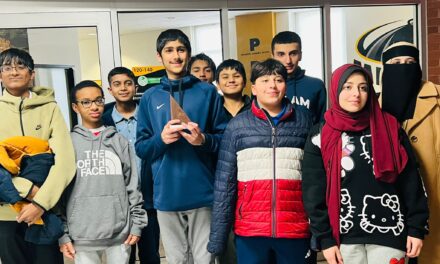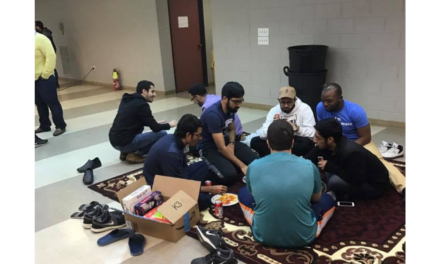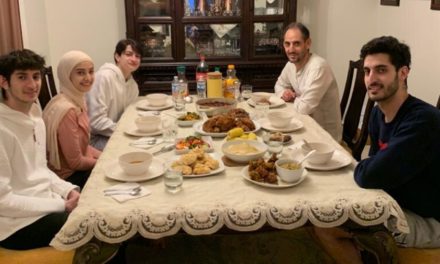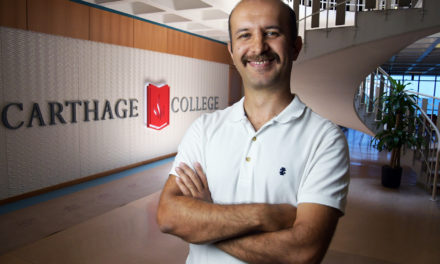Photo by Mouna Rashid
Taqwa Obaid, owner of Taqwa’s Restaurant and Bakery at 4651 S. 27th St, grew as a caterer into an influential Muslim restaurateur in the Milwaukee area.
As Milwaukee’s Muslim community has grown during the past 30 years, Muslim women have established vital nonprofit organizations as well as successful businesses in the Milwaukee area. Guided by their faith and the needs of others, they have expanded their organizations, essential services, hospitality and refugee resources to admirable degrees while raising their families.
International Women’s Day (IWD) celebrates the social, economic, cultural and political achievements of women. The day also marks a call to action for accelerating gender parity. “Inspire Inclusion” is the theme for International Women’s Day 2024.
“When we inspire others to understand and value women’s inclusion, we forge a better world. And when women themselves are inspired to be included, there’s a sense of belonging, relevance, and empowerment.” (IWD)
Before the annual International Women’s Day is celebrated worldwide on March 8, Wisconsin Muslim Journal wants to acknowledge, appreciate and spotlight the achievements of some remarkable women in our community. (There are many more). They inspire others by what is possible and demonstrate greatness in service of others.
Milwaukee Muslim Women’s Coalition and many other organizations will be celebrating International Women’s Day with a pop-up gallery, market and guest panel on Saturday, March 2 at 3pm at the Islamic Society of Milwaukee’s community center on 815 W. Layton Ave. Free and open to the public!
Sheila Badwan
The Hanan Refugees Relief Group (HRRG) began in 2017 as an all-volunteer 301(c)(3) group responding to the needs of refugees from the Syrian civil war who began arriving in the U.S. Originally based in North Carolina, Hanan shifted its headquarters to Milwaukee, which had rapidly become the organization’s most active chapter.
Sheila Badwan, Hanan’s executive director, has played an essential role as the organization expanded to accommodate the increasing number of refugees from Muslim nations.
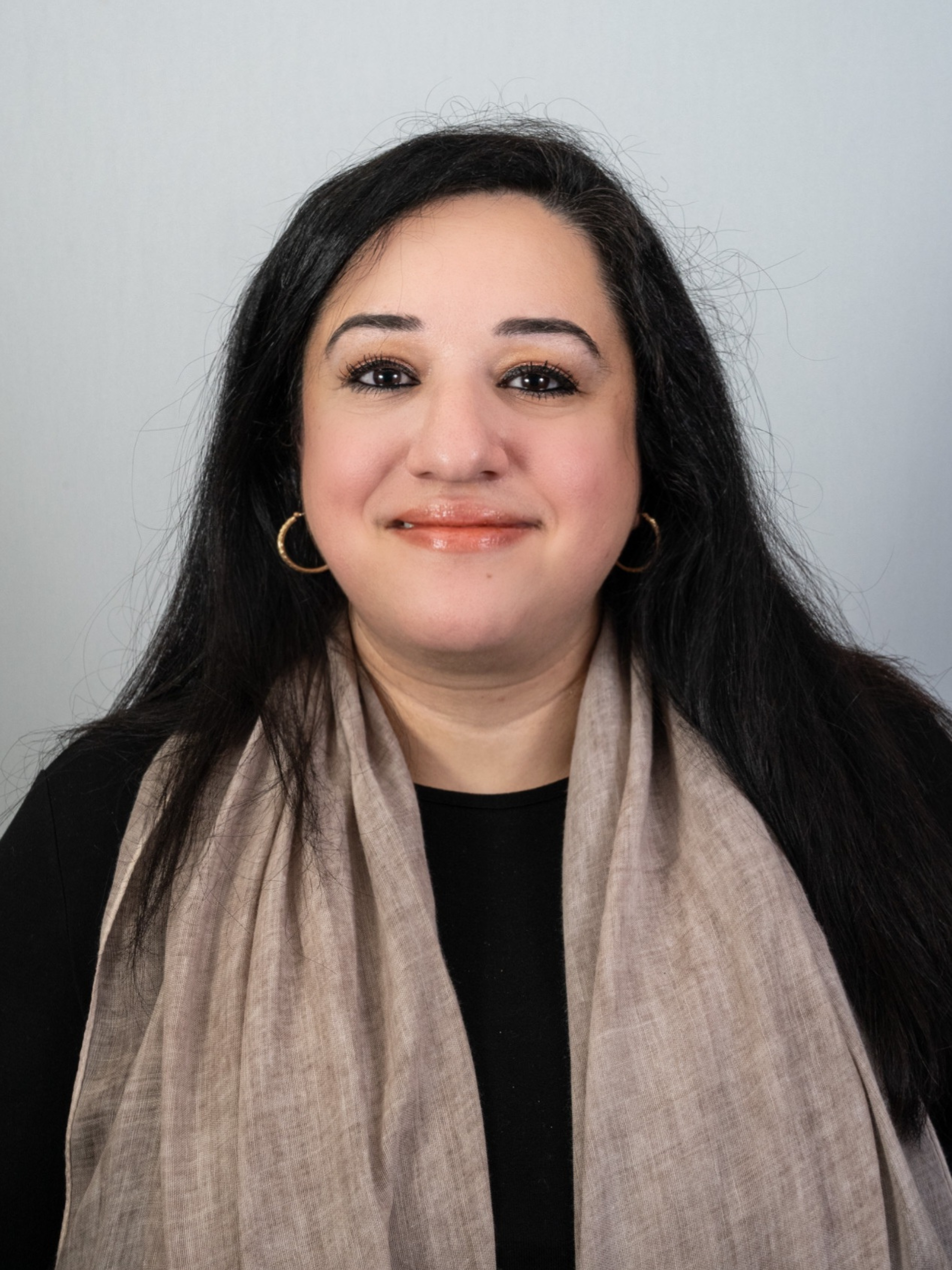
Sheila Badwan, executive director of Hanan Refugees Relief Group and founding member of the Wisconsin branch
“In the last seven years we have grown tremendously with an 8,000 square foot office and a 2,500 square warehouse,” she said. That growth accelerated over the past two years. “We have 19 employees on site at our Hanan office. Our local programs have expanded tremendously,” she continued. Hanan is located at 3927 S. Howell Avenue, Suite 103, Milwaukee.
The Taliban’s August 2021 victory in Afghanistan triggered another wave of refugees and a new mission for Hanan. Badwan worked to collect and ship clothing and other necessities to Fort McCoy, where refugees were housed under Operation Allies Welcome until the early months of 2022. “Our mission is to transition refugees into their host communities by providing short term and long-term solutions,” Badwan said.
In July 2023, Hanan became “the first affiliate office to open under Islamic Relief USA,” Badwan said. The Virginia-based nonprofit provides aid to communities of all backgrounds impacted by natural disasters and supports a variety of social programs. Hanan helps administer “the reception and placement program that was approved by the State Department to provide core services for 90 days to newly arrived refugees,” Badwan explained.
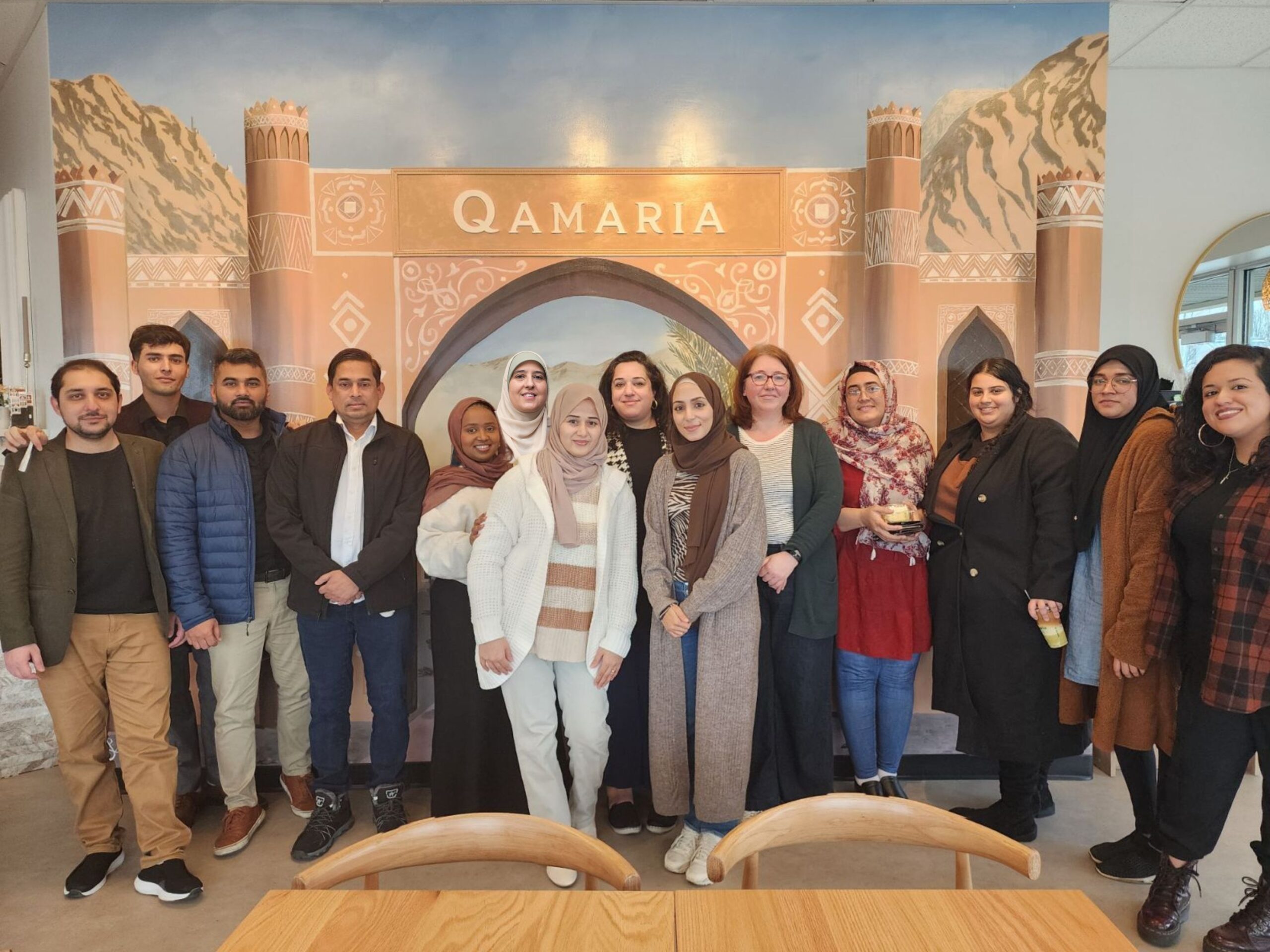
The HRRG team, from left to right, Abid Kazmi, Bahader Hotak, Faisal Khan, Kyaw Win, Umalkhayr Abdi, Umalkhayr Abdi, Helima Aichoune, Khatol Narzari, Shelia Badwan, Amal Azzam, Andrea Vodicka, Maryam Durani, Dalidah Abdelkarim, Sakinah Salim, Angelica Rocha
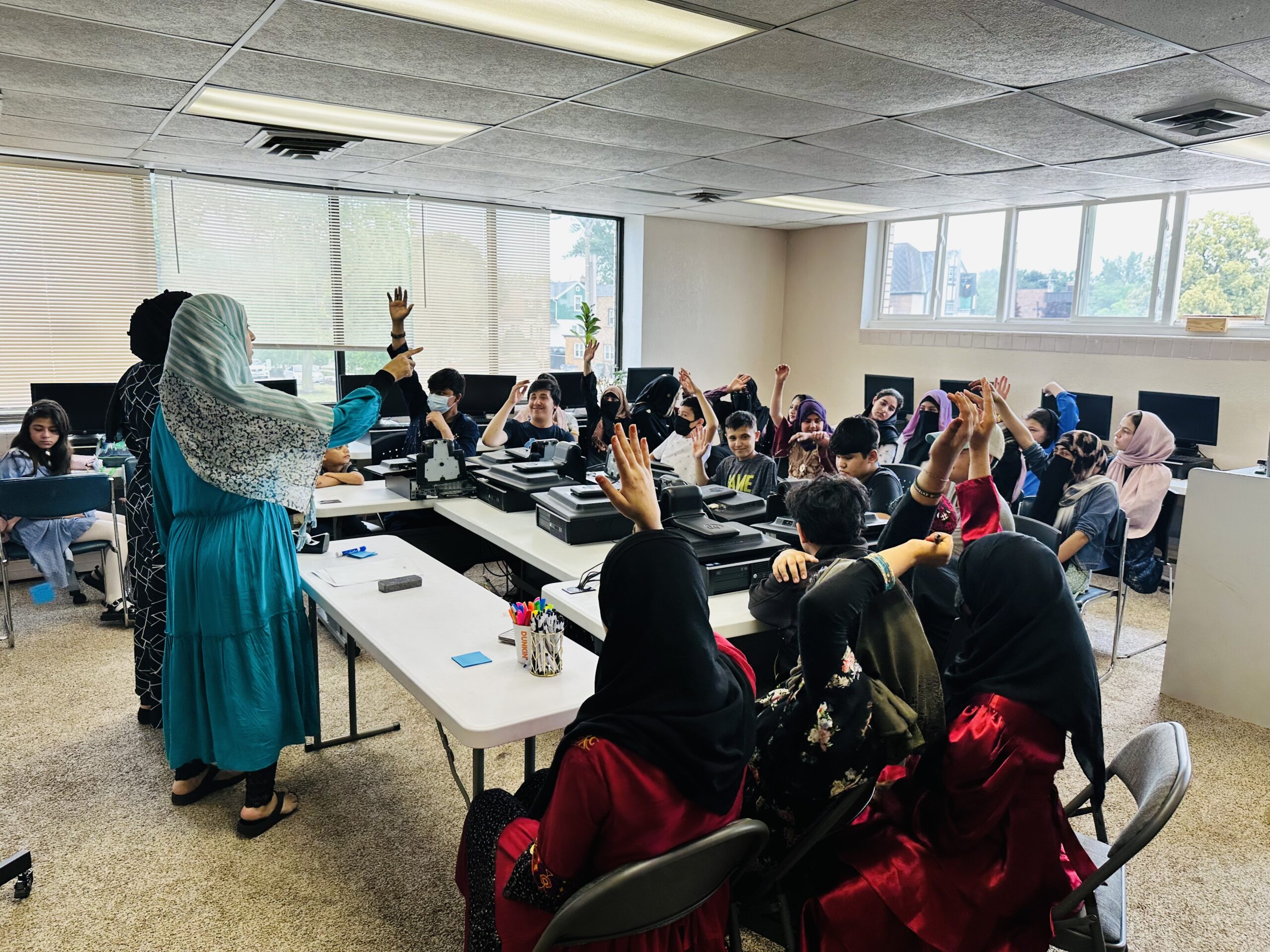
The ongoing Afghan youth program at Hanan’s offices at 3927 S. Howell Avenue
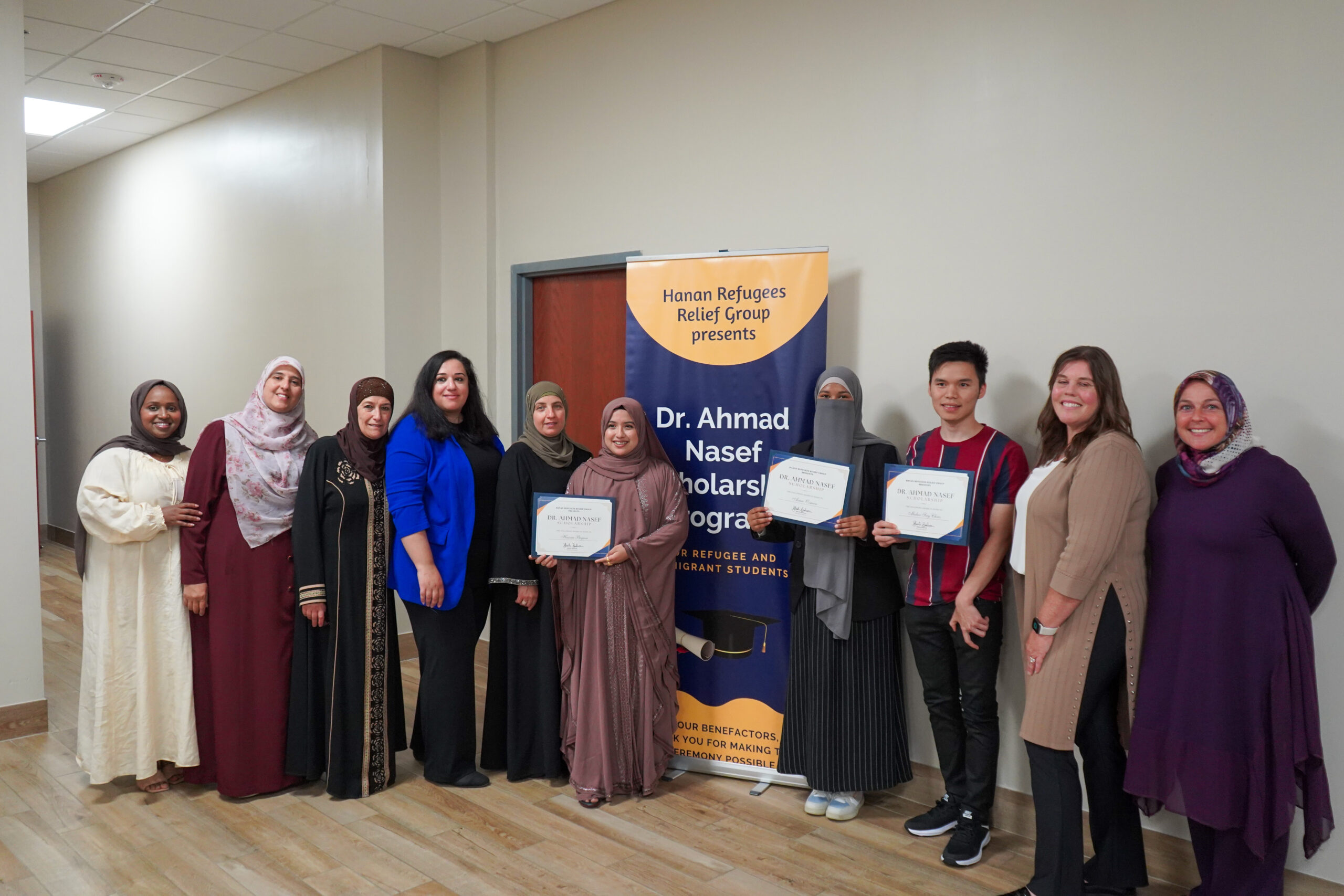
Dr. Ahmad Nasef was part of the founding committee of the HRRG Milwaukee Chapter. To honor him, HRRG set up the Dr. Ahmad Nasef Scholarship award program for refugee and immigrant students in his name. From left to right, Umalkhayr Abdi, Helima Aichoune, Fatmeh Farhoud, Sheila Badwan, Maysoun Ahmad, Hasnina Begum (scholarship awardee), Asma Osman (scholarship awardee), Mular Say Chris (scholarship awardee), Charolette Nasef, Charity Ramirez-Bektesi
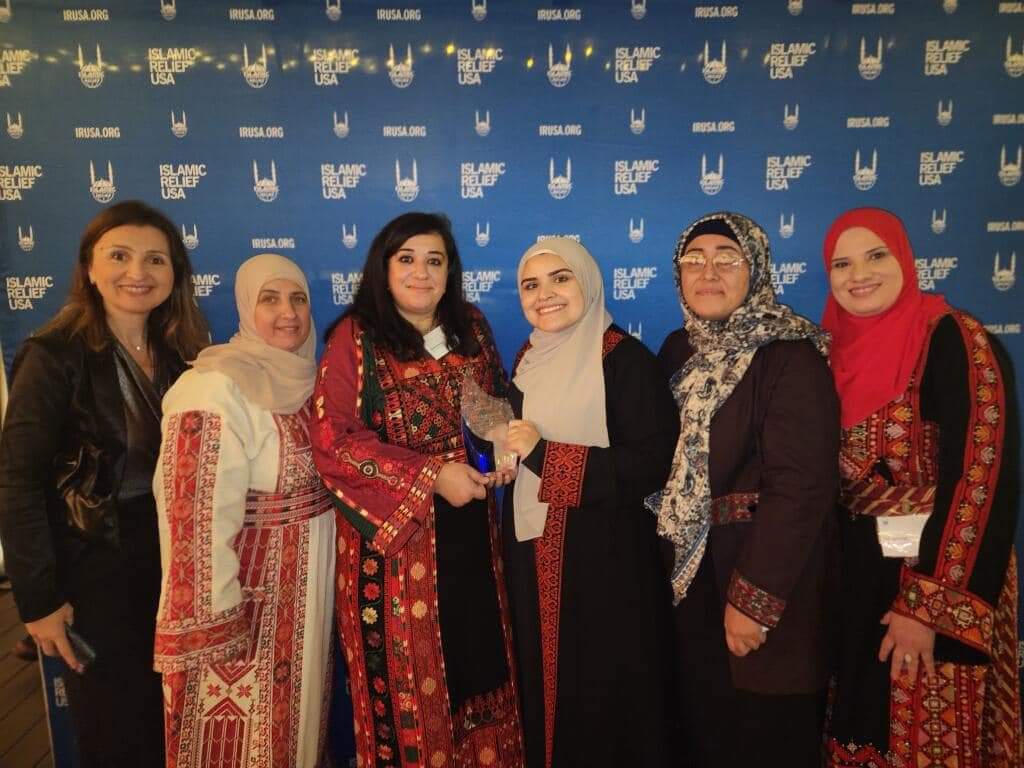
HRRG receives award from Islamic Relief USA for Best Resettlement Award in the Nation in 2022. From left to right, Bojana Zoric-Martinez, Wisconsin state refugee coordinator, Maysoun Ahmad, Sheila Badwan, Maryam Durani, Saja Awad, refugee program manager Islamic relief USA, Sausan Naji
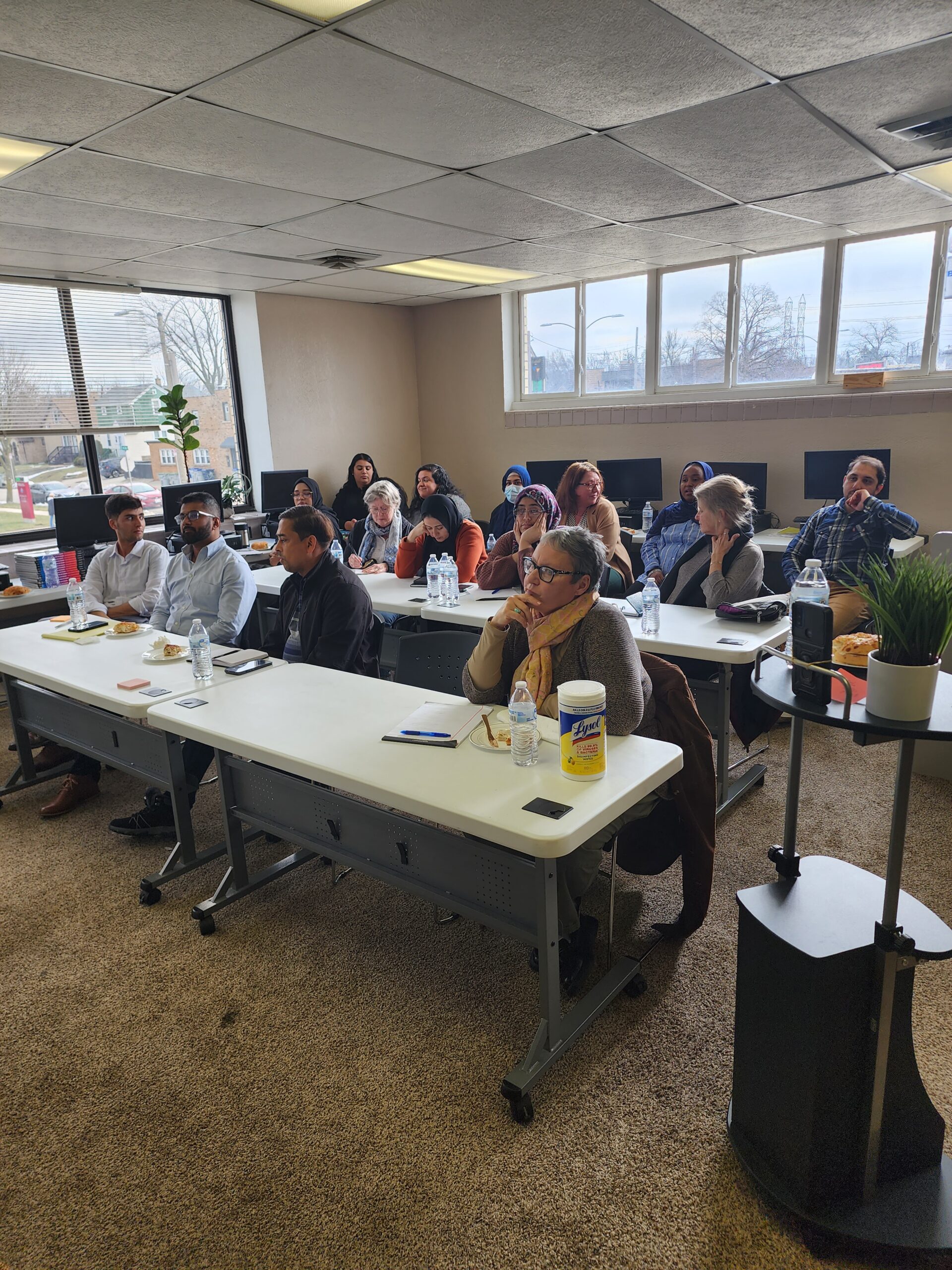
Staff and volunteers at HHRG’s office taking a refugee mental health training class.
Hanan has four other “core programs” concerned with education, food, health and emergency relief. Hanan sponsors the Dr. Ahmad Nasef Scholarship and English as second language classes; organizes a Ramadan box program, a halal food pantry and a halal turkey distribution; supports a maternal health program, group therapy classes, health education classes and “other state-funded health programs to support refugees after 90 days,” as well as “emergency relief when needed to families,” Badwan said.
She shared some stories on the outcome of Hanan’s assistance to refugees. “We have helped refugee women get licenses by paying for driving classes and also some even getting donated cars,” she said. “These same women have now been able to get jobs and are working. These are refugee women who never drove or even worked before. Seeing this success is very rewarding and makes you feel you have accomplished something.”
Badwan faced some challenges early on as a woman. “When Hanan was established in Milwaukee, we received so much pushback from many of the male community leaders,” she said. “However, I kept pushing and trying hard to have a seat at the table.”
Taqwa Obaid
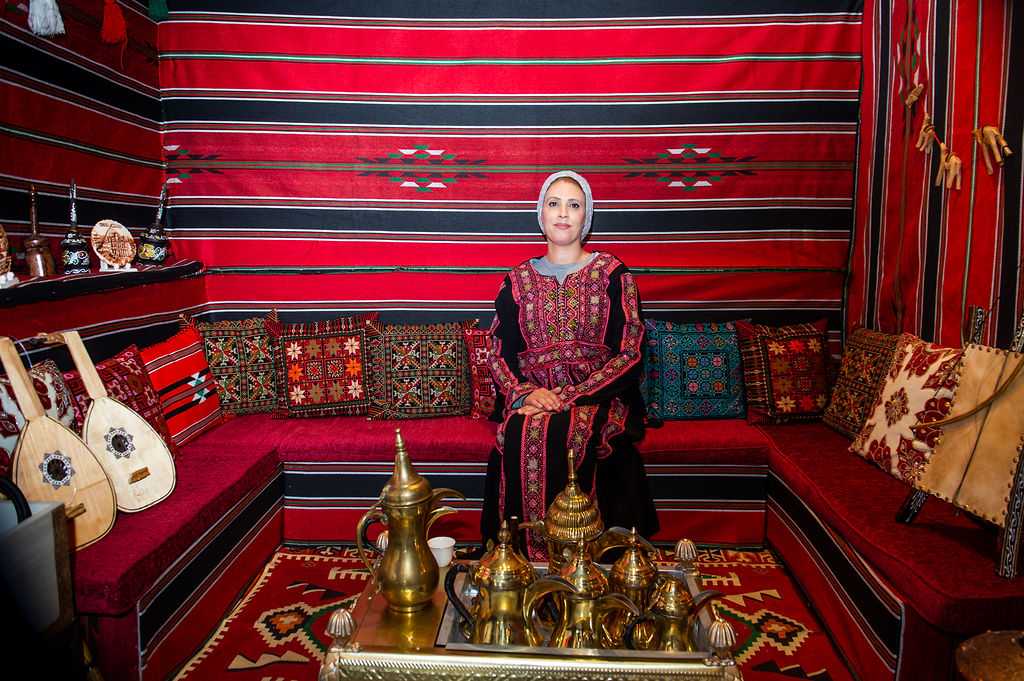
Photo by Mouna Rashid
Taqwa Obaid is a local legend for her service and her commitment to the community as well as her food.
The building housing Taqwa’s Bakery and Restaurant (4651 S. 27th St., Greenfield) was once a Burger King, but few signs of its former occupant are visible. Taqwa’s is attractively arranged with booths and tables, decorated with scenes from Jordan and Palestine and adorned with colorful kilims on the walls and slanted ceilings. Bakery is included in the name for good reason. Taqwa’s is famous for its freshly baked taboun, a traditional flatbread served thin with crispy edges, along with its unique menu of Middle Eastern dishes.
Taqwa Obaid, who owns the bakery-restaurant with her husband, Abdullah Habahbeh, was known in Milwaukee’s Muslim community as a caterer before opening Taqwa’s in 2021. “As a Palestinian woman and a mother, I always had a hard time driving to Chicago to buy bread and put it in the freezer since we don’t have it in Milwaukee,” she said. Rather than drive an hour and a half for bread, she began to bake her own.
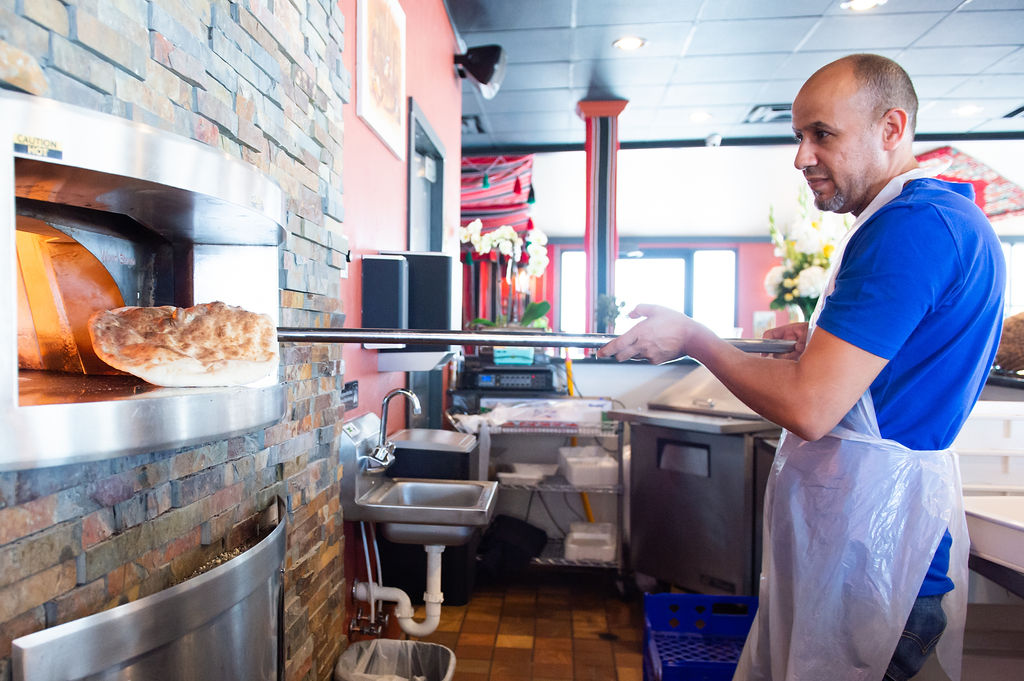
Photo by Mouna Rashid
Abdullah Habahbeh bakes fresh bread every day in the oven inside Taqwa’s restaurant.
“All of our food at the restaurant is homemade from scratch, just like a Palestinian house. Most of our food you cannot find at any other restaurant. It takes time to make, and you have to have the right recipes,” she continued. “The recipes we use at the restaurant, my mom passed to me just one month before she passed away.”
The menu includes stuffed grape leaves (dawalee), chicken shish tawook and shish kabob, kufta kabob, sawani kufta, a veggies shish kabob platter and an entrée called mosakhan, with sweet caramelized onions and seasoning served on taboun. Tabbouleh and other salads are available. Service is friendly and unobtrusive and Middle Eastern music plays softly in the background.
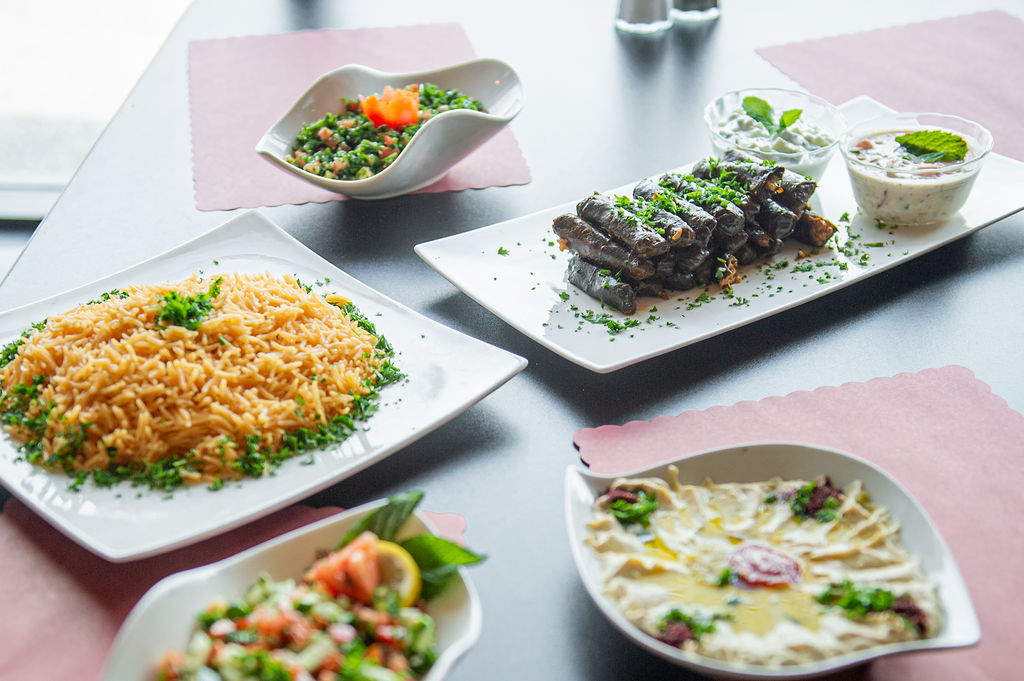
Taqwa serves a variety of beautifully presented classic recipes
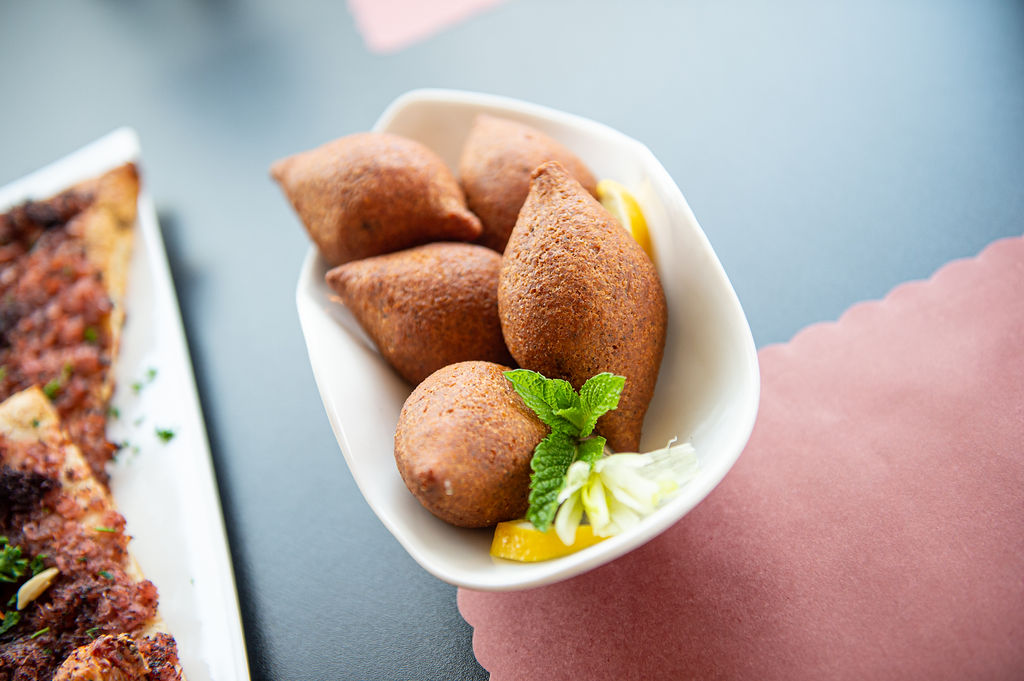
Kibbeh are small croquet-like balls stuffed with lamb, bulgur wheat and spices.
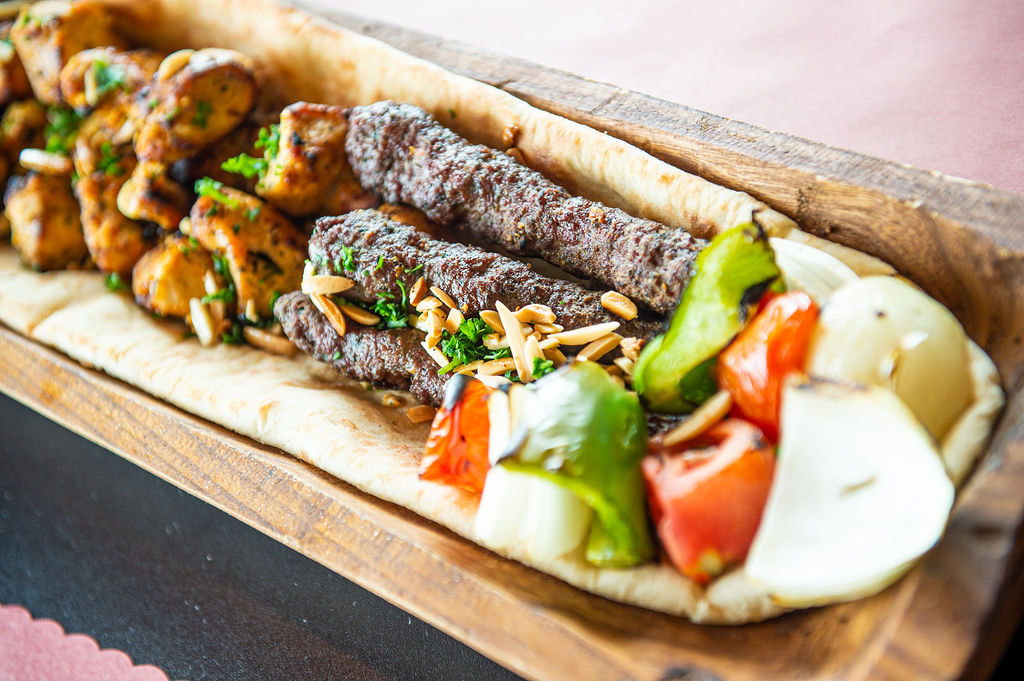
mixed grill of chicken, lamb and beef
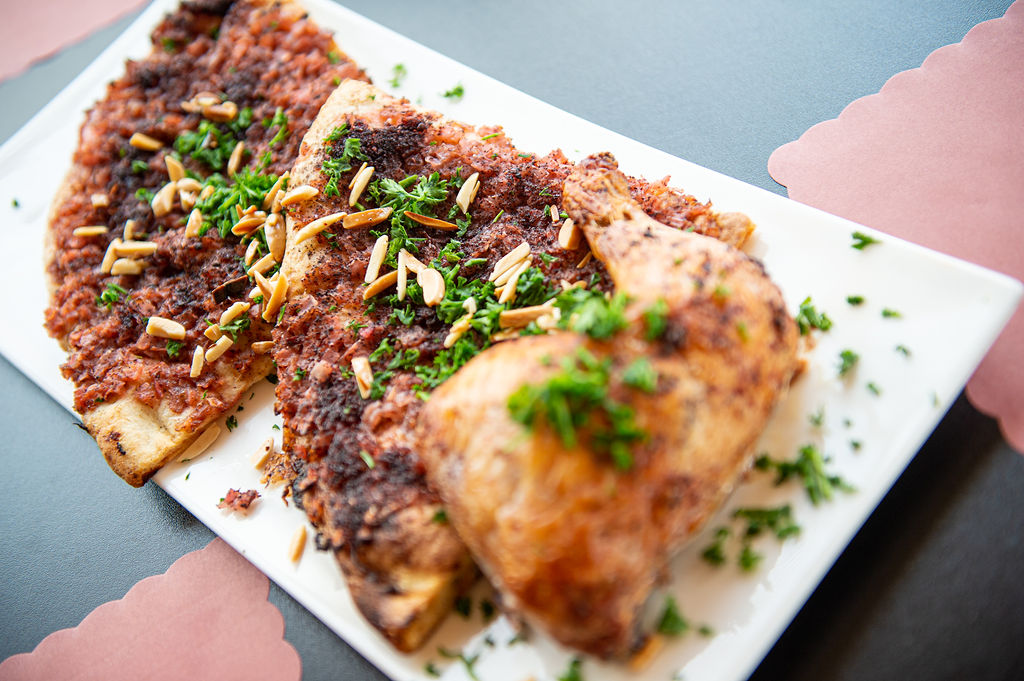
musakhan made from chicken, sumac, taboon bread
Photos by Mouna Rashid
“As a woman and a mother of two,” opening Taqwa’s “was a challenge for me and my family,” Obaid said. “They gave me all the support I needed to get this business going with the help of my husband, standing behind my back, and my sisters taking care of my kids as I’m busy at work … As a Muslim woman I got all the support from our community” as well as the Greenfield community as a whole, including the mayor.
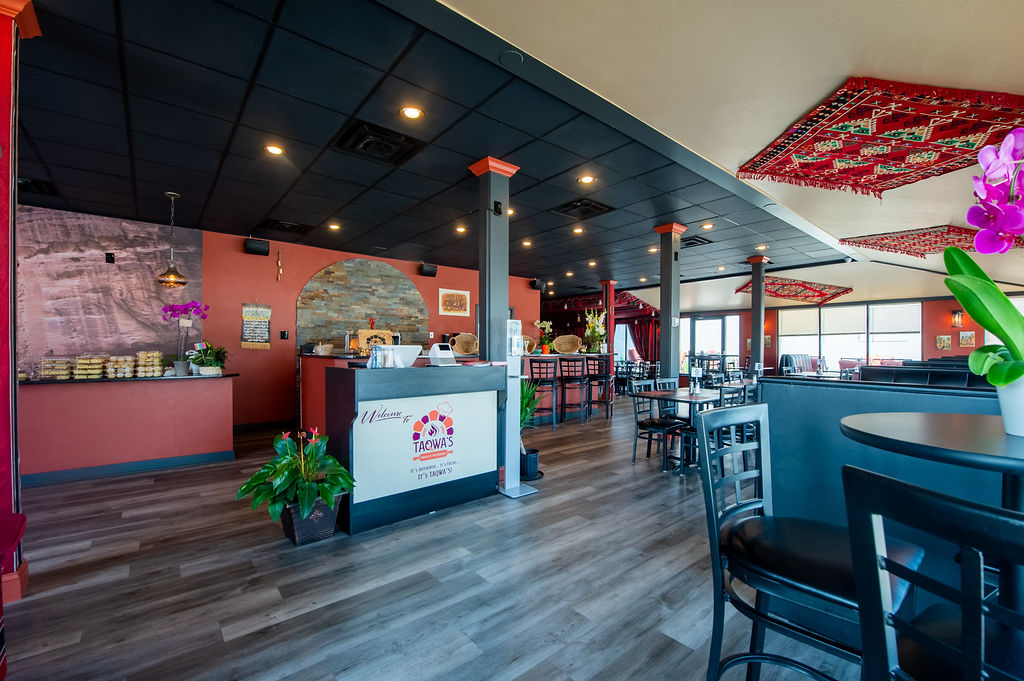
Photo by Mouna Rashid
The interior of Taqwa’s Bakery and Restaurant is cozy and comfortable in a traditional Palestinian style.
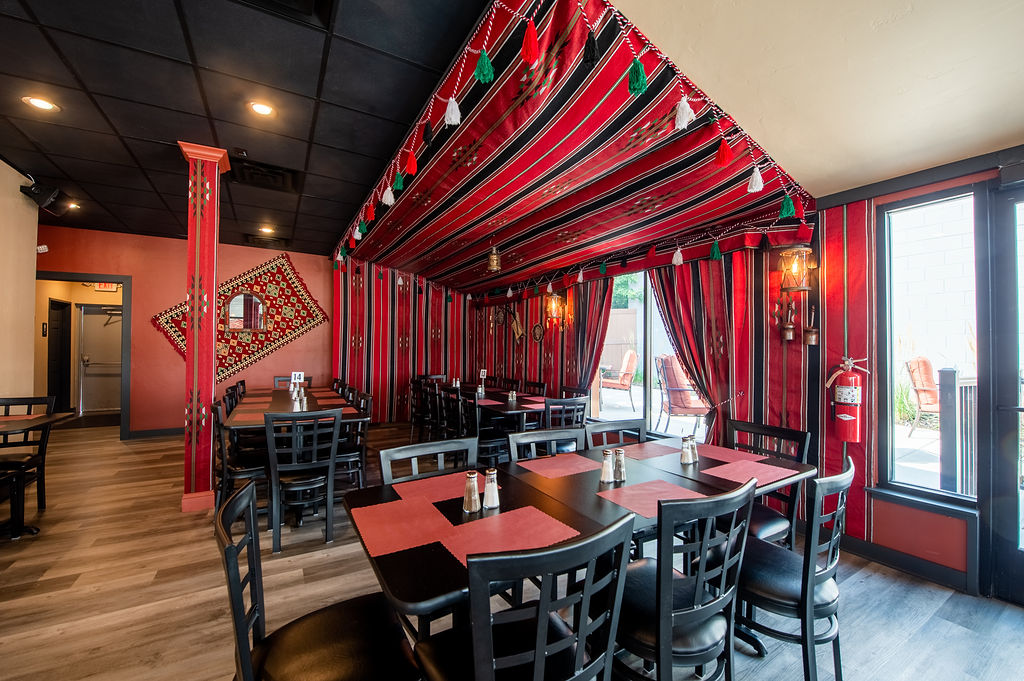
Photo by Mouna Rashid
Taqwa’s restaurant décor was designed to be reminiscent of an Arabian tent with pillows and wall-hangings was created as a place for families to have their pictures taken.
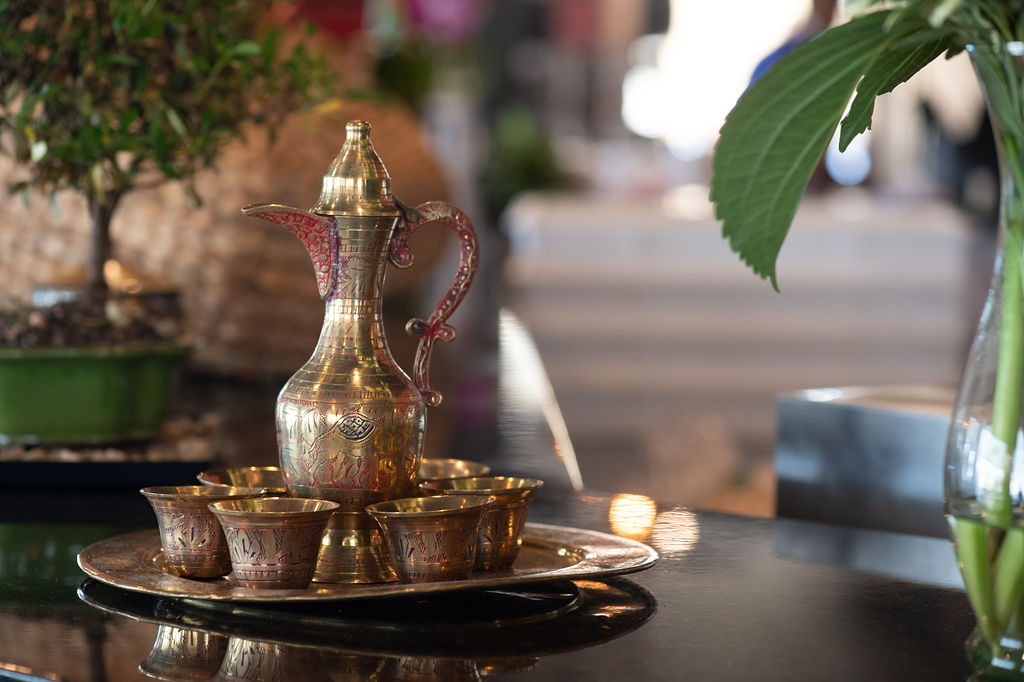
traditional tea service

fresh homemade baklava
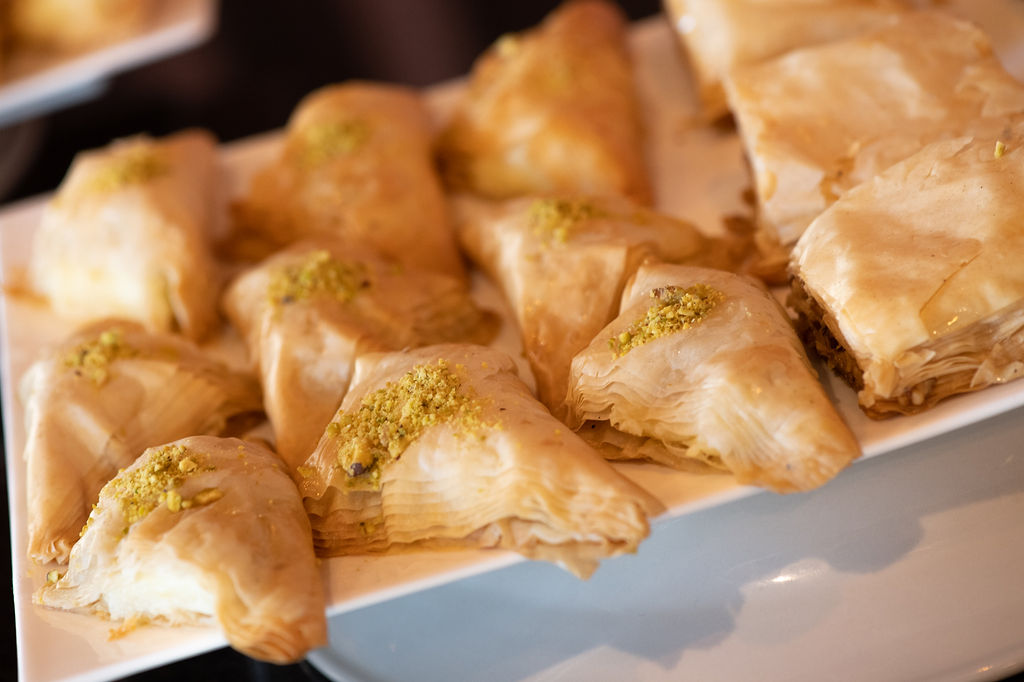
warbat is a phyllo pastry stuffed with a cream filling.

ma’amoul, an special Arab cookie filled with dried fruits or nuts.
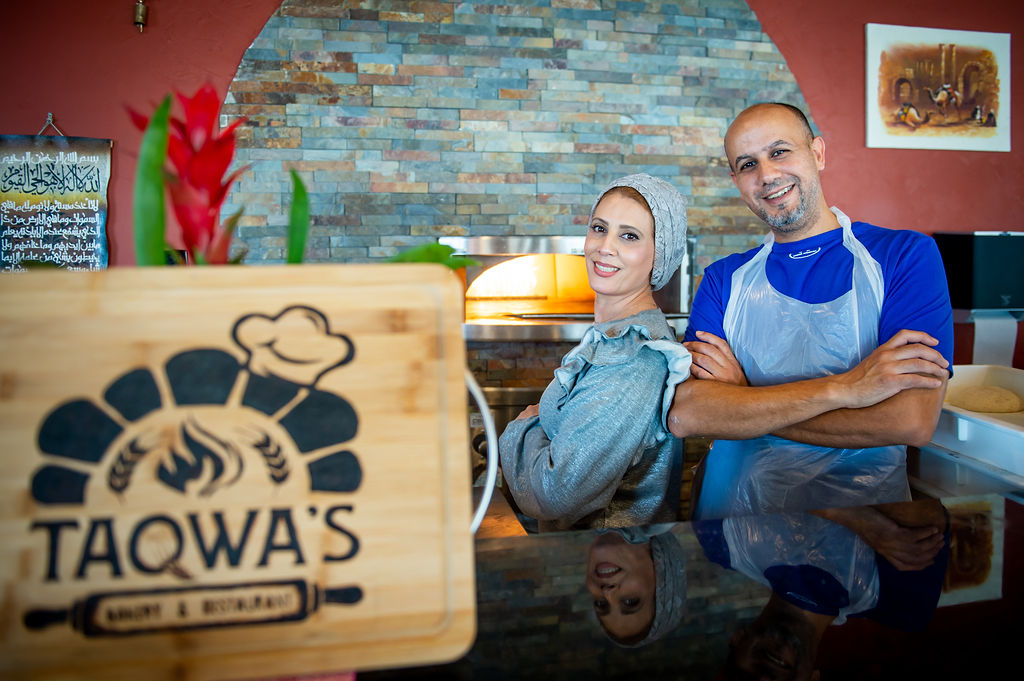
Photos by Mouna Rashid
Taqwa Obaid her husband, Abdullah Habahbeh opened Taqwa’s Bakery and Restaurant on 4651 S. 27th Street. Before opening her restaurant, she was the go-to caterer for many in the community who loved her recipes.
Obaid concluded with some thoughts about International Women’s Day on March 8.
“It is a day when women are recognized for their achievements without regard to divisions whether national, ethnic, linguistic, cultural, economic or political. International Women’s Day has assumed a new global dimension for women in developed and developing countries alike. I want to say to every woman taking care of a house, husband, kids, appointments, cooking, cleaning and has a job—You are such an amazing person. You’re so strong and keep it up.”
Fozia Ahmed
When Fozia Ahmed saw a need in the community, she began to find solutions. Ahmed launched the Muslim Community and Health Center of Wisconsin (MCHC) at 803 W. Layton Ave in 2004 “to provide social services for people” hampered “because of stigma—including religious stigma and cultural stigma.”
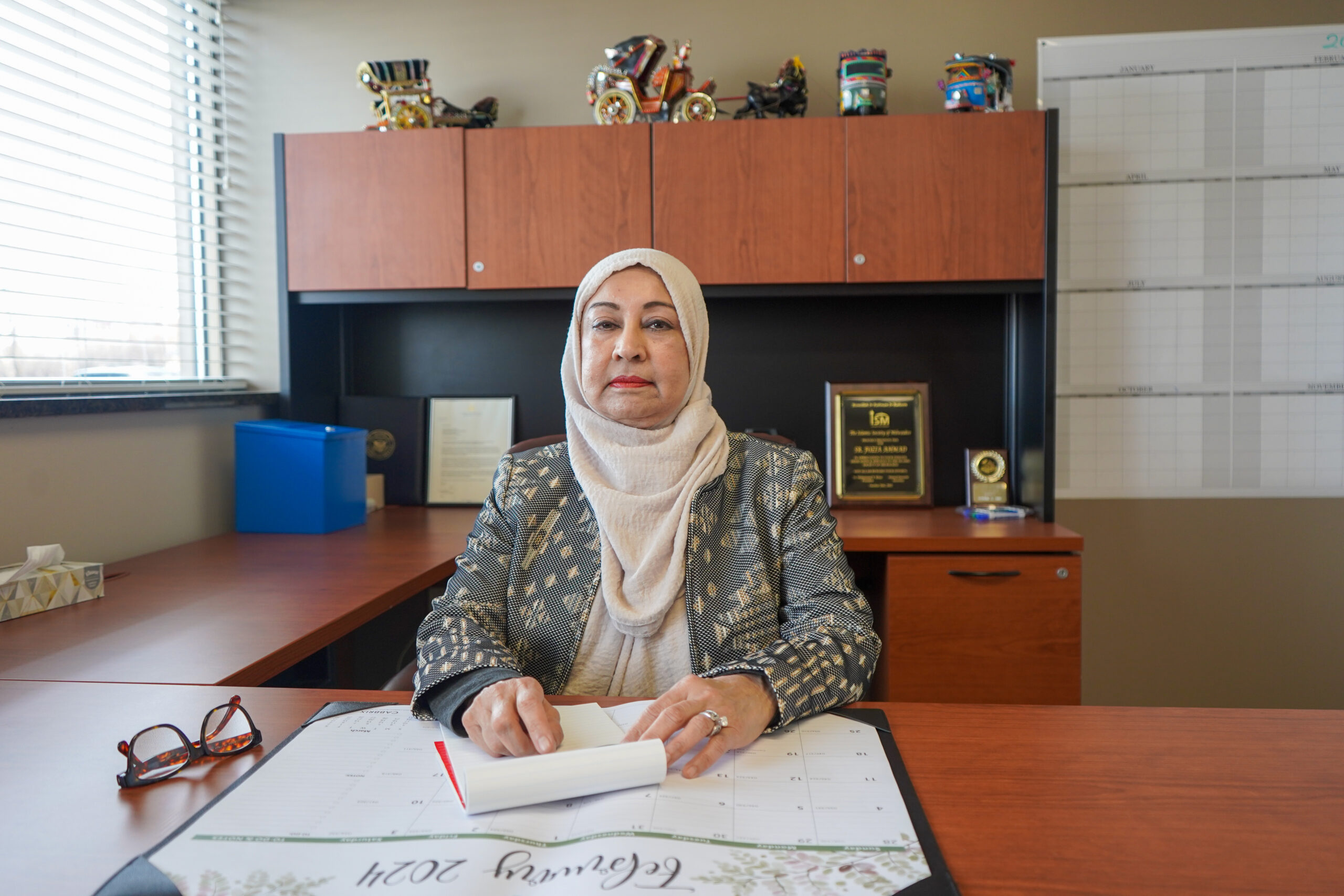
Photo by Kamal Moon
Fozia Ahmed, MCHC founder and president began MCHC in 2004 in response to the “pressing need” she saw in the refugee and immigrant communities.
In the beginning, it was just Ahmed and her volunteers, including physicians willing to staff a free clinic once a week. “The Islamic Society of Milwaukee was very helpful in getting us a space—two examining rooms in the Salam School,” open in 2008, she said.
In 2012, MCHC gained 501(c)(3) status and grew into a 5,000 square foot facility. It has since expanded to 10,500 square feet with 40-45 employees providing primary and family care, cardiology, neurology, dentistry, podiatry, occupational and physical therapy and behavioral counseling.
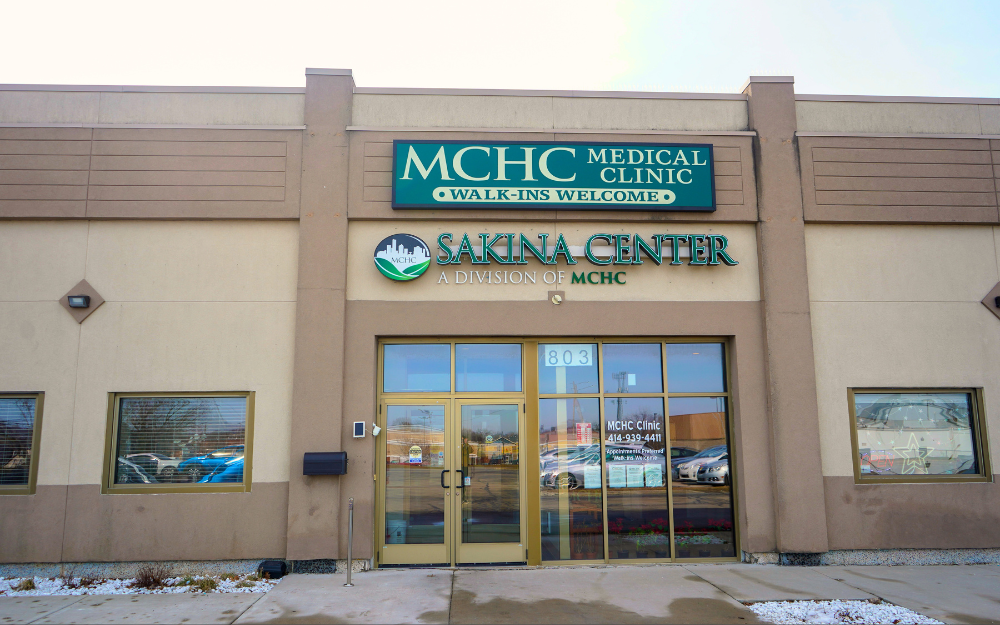
Photo by Kamal Moon
MCHC, 803 W. Layton Ave., as the Milwaukee Journal Sentinel noted, is “uniquely positioned to serve vulnerable immigrants and refugees on the south side” due to its interpretation services and low-cost health care for the uninsured and under-insured. (Sandra Whitehead, WMJ)
MCHC’s Refugee Resource Center has been accredited by the U.S. Health and Human Services Department. Their Sakina Senior Center, designated as a dining site by the Milwaukee County Department on Aging, serves 60-90 meals day Monday through Friday as well as providing classes, field trips and other activities.
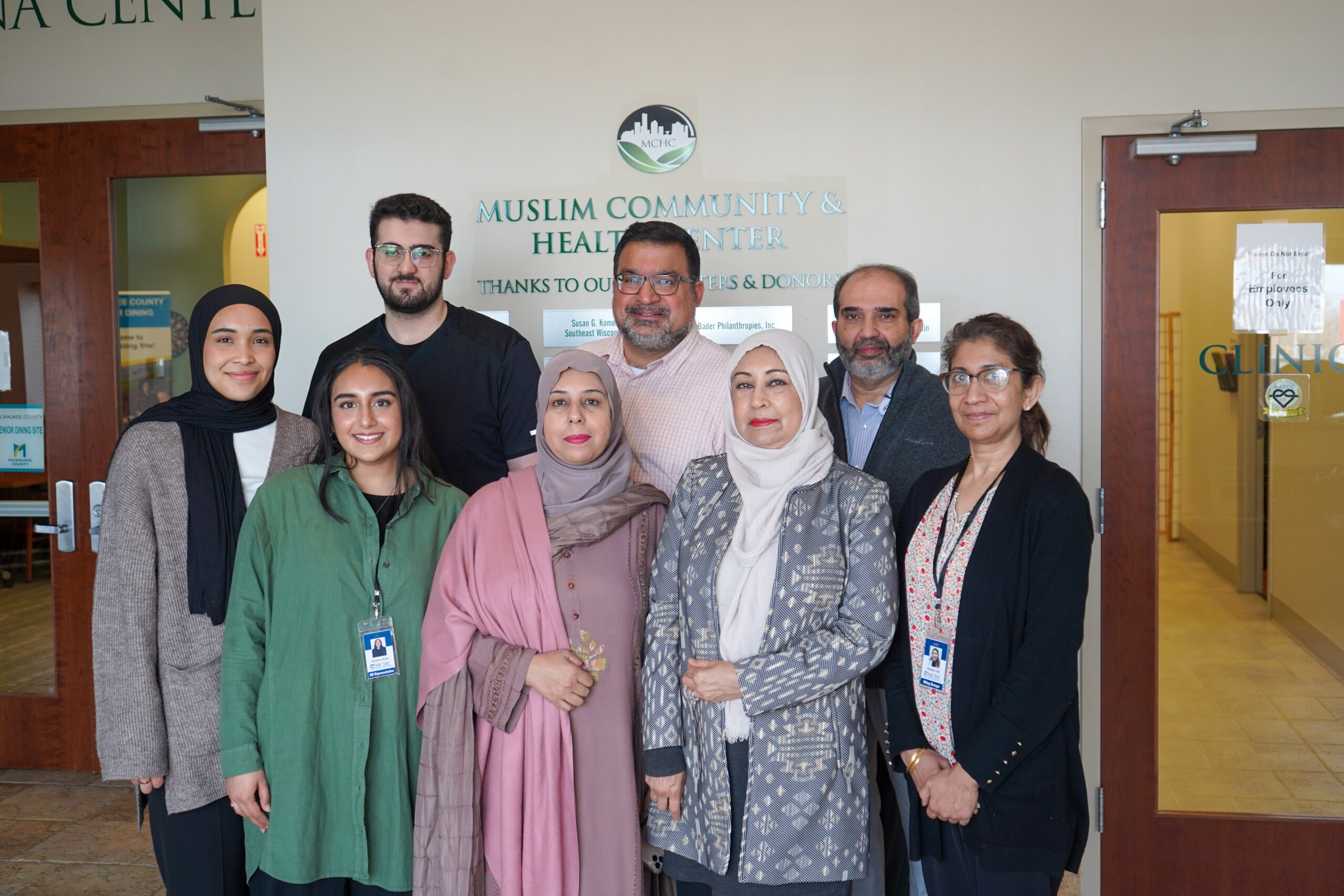
Photo by Kamal Moon
MCHC team, (front row from left to right) Samavia Akhter, HR specialist, Mariam Tanvir, Sakina Center coordinator, Fozia Ahmed, founder and president, Tahseena Tahir, billing coordinator, (back row, left to right) Safiya Schaub, program manager, Ahmad Masoud, lead medical assistant, Dr. Mushir Hassan, internal medicine physician, Arman Tahir, CEO
MCHC was the first healthcare clinic in Wisconsin to receive the federal “look-a-like” designation given to nonprofit health centers or clinics that serve medically underserved areas and populations but do not receive block grants.
The center’s many services are open to people of all backgrounds, but much of the inspiration came from the needs of immigrants and refugees.
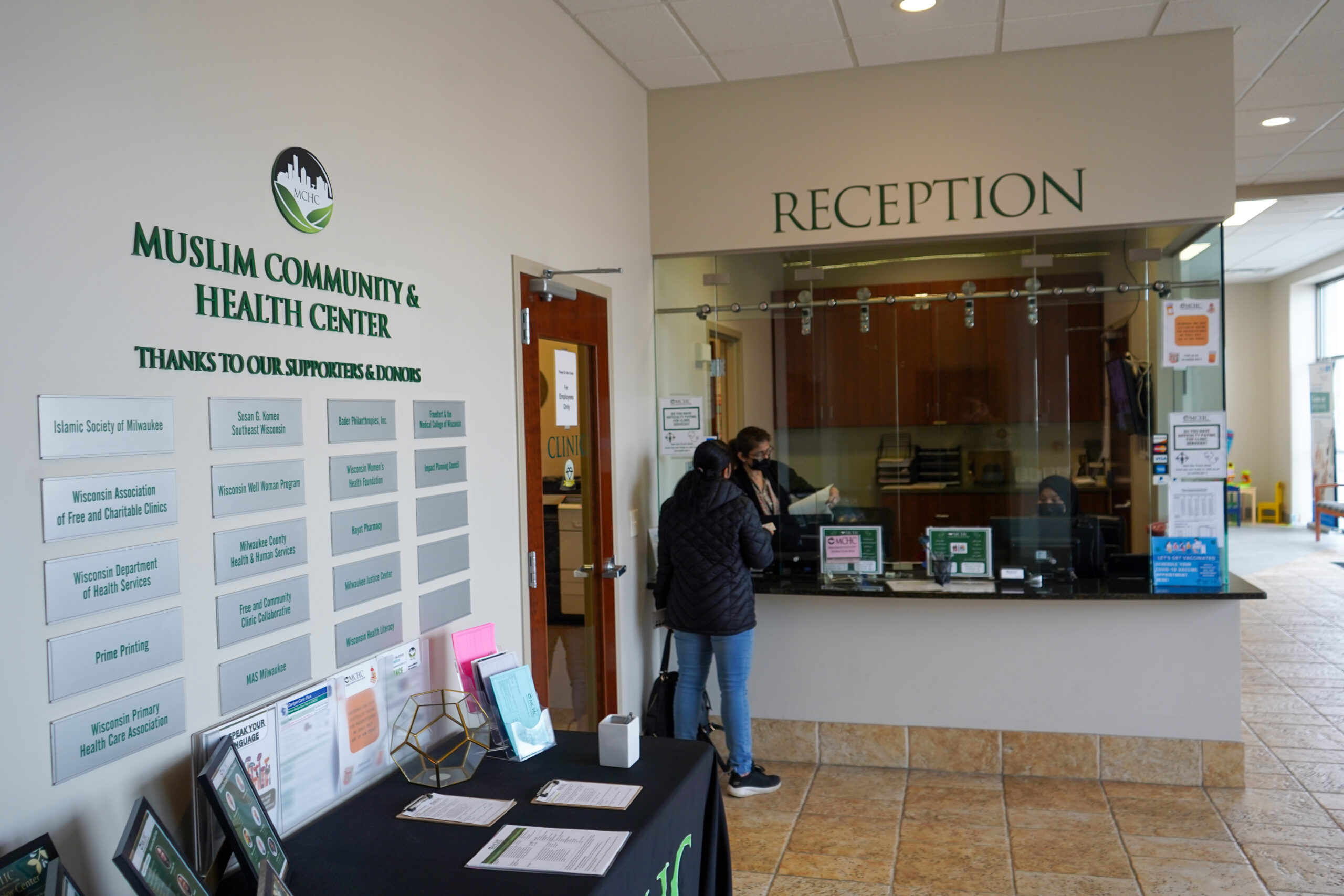
Photo by Kamal Moon
“They often don’t know where to go,” Ahmed said. “There may be cultural barriers. How to navigate through the big hospitals can be difficult for them. We offer services in many languages” including Arabic, Urdu, Russian and several Burmese dialects.
MCHC is not an urgent care center because it’s not open 24 hours a day, seven days a week, but they do provide immediate care for walk-ins during office hours, 9 a.m.- 5 p.m. Monday through Friday, and 9 a.m.- 3 p.m. Saturday. They treat the insured and the uninsured and accept Medicare and Medicaid.
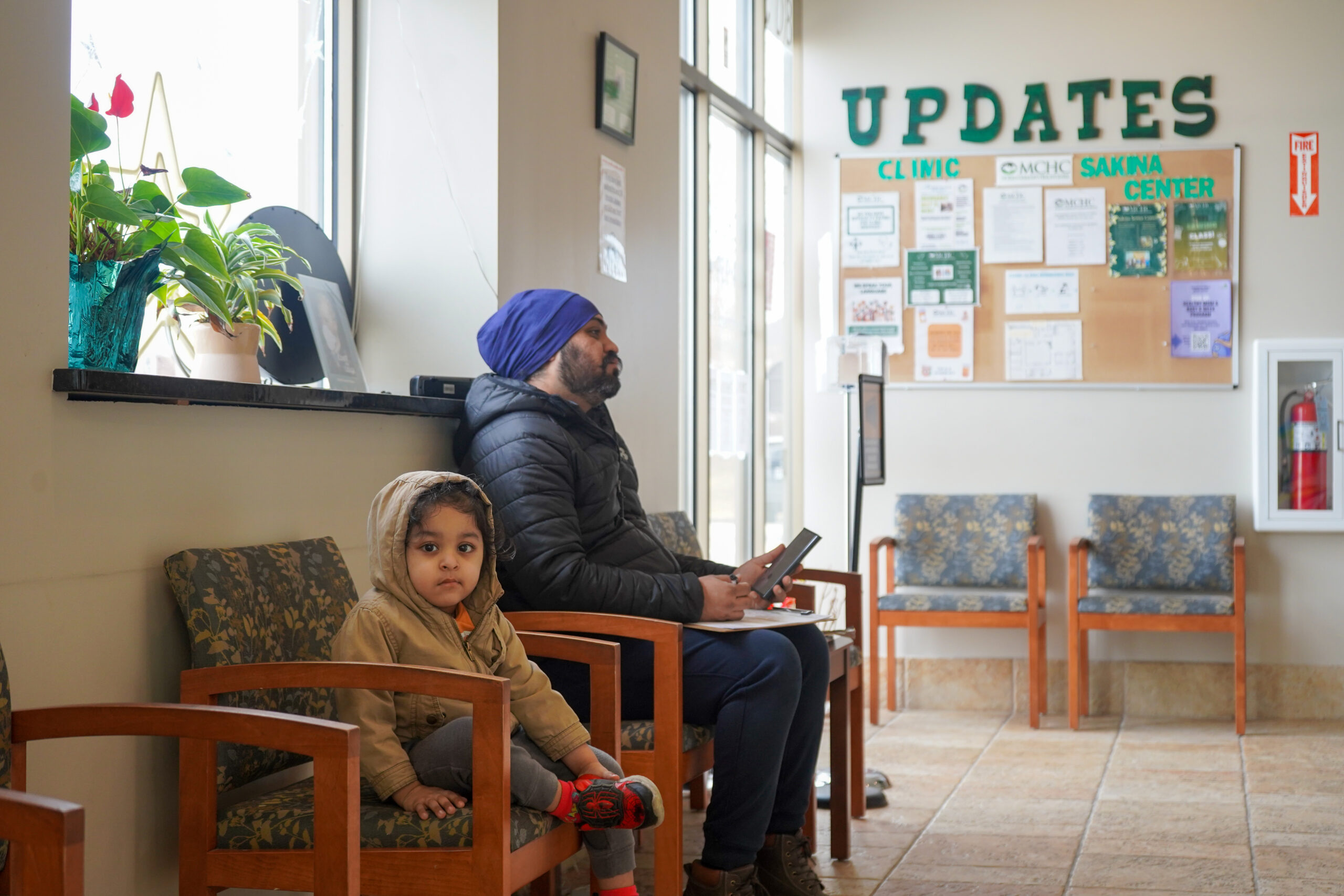
Photo by Kamal Moon
Ahmed isn’t resting on her accomplishments as president of MCHC. Her plans for the future include expanding medical and rehabilitation services, adding hospice care and expanding to other Milwaukee area neighborhoods by establishing satellite centers. She experienced no barriers as a Muslim woman while building the center.
“Everyone was very helpful,” she said. “Our board is very dedicated, and I thank them for their guidance. Our structure is strong.”
Rafat Arain
Rafat Arain had been a dentist but gave up dentistry when she became a mother. Her love of children and her interest in social work led to her role as chairperson of the Islamic Society of Milwaukee’s social committee. The arrival of Bosnian refugees during the 1990s planted the seed that eventually blossomed as the Crescent Learning Center (801 W. Layton Ave.), the only licensed Muslim daycare center in the Milwaukee area.
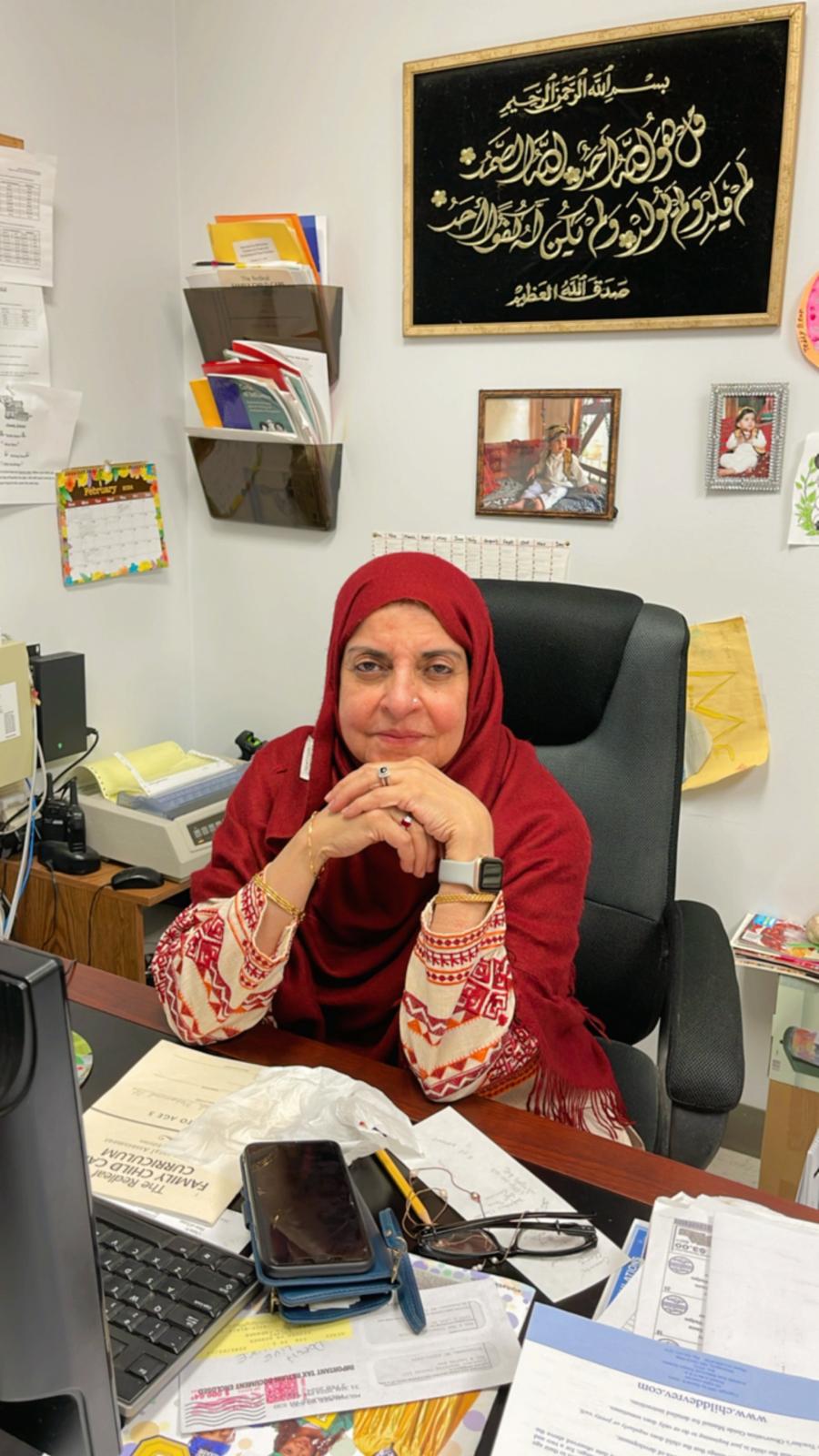
Rafat Arain, founder and director of Crescent Learning Center in Milwaukee
Arain and her husband, a neurologist, took Bosnian refugees into their home in 1993. Before long, the Arains sheltered additional Bosnian as well as Somali refugees and helped them as they established their own homes. In recent years, they have also assisted with the arrival in Milwaukee of the Rohingya, the persecuted Muslim minority from Myanmar (Burma).
“While I was helping a Burmese family, taking them clothes, towels and things, I asked a 9-year-old kid, ‘Can you give me your mom’s phone number?’” Arain recalled. “He’d been in the U.S. for one year but could not give me the number in English. I realized that he was not learning anything!”
Aware of the increasing number of Somali and Rohingya children in daycare, Arain decided that “there was a need for Muslim daycare in Milwaukee.” She began taking early childcare classes and, in 2007, applied for a license to operate a daycare center. “It took almost four years to get a license,” she recalled. “They did a lot of background checks. 9/11 wasn’t too far in the past!”
Crescent Learning Center opened on July 5, 2011, in a church basement on Milwaukee’s north side. On December 3, 2012, Crescent moved to its own home near the Islamic Society of Milwaukee.
“My family has always been very supportive of my social work,” she said, “therefore they encouraged me in doing this, especially my husband and my older son. Without their support, both financially and emotionally, it would have been very tough. Both my daughters were physically there to help me get started.” Arain now employs 20 women.
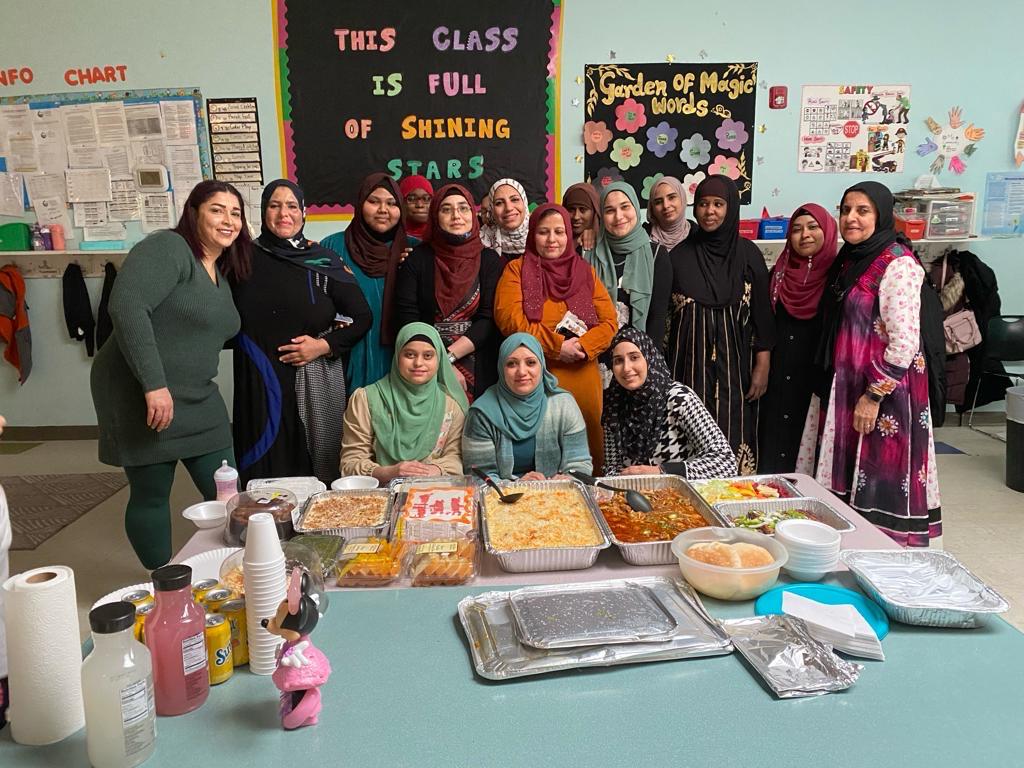
Photos courtesy of Rafat Arain
Staff of Crescent Learning Center (front row, left to right) Hamida, Kamilia, Walaa, (second row) Sherien, Omibrahim, NurHafizah, Nida, Sayma, Iqra, Shukri, Hasina, Rafat Arain, director, (back row) Asnina, Mona, Zahra and Alaa
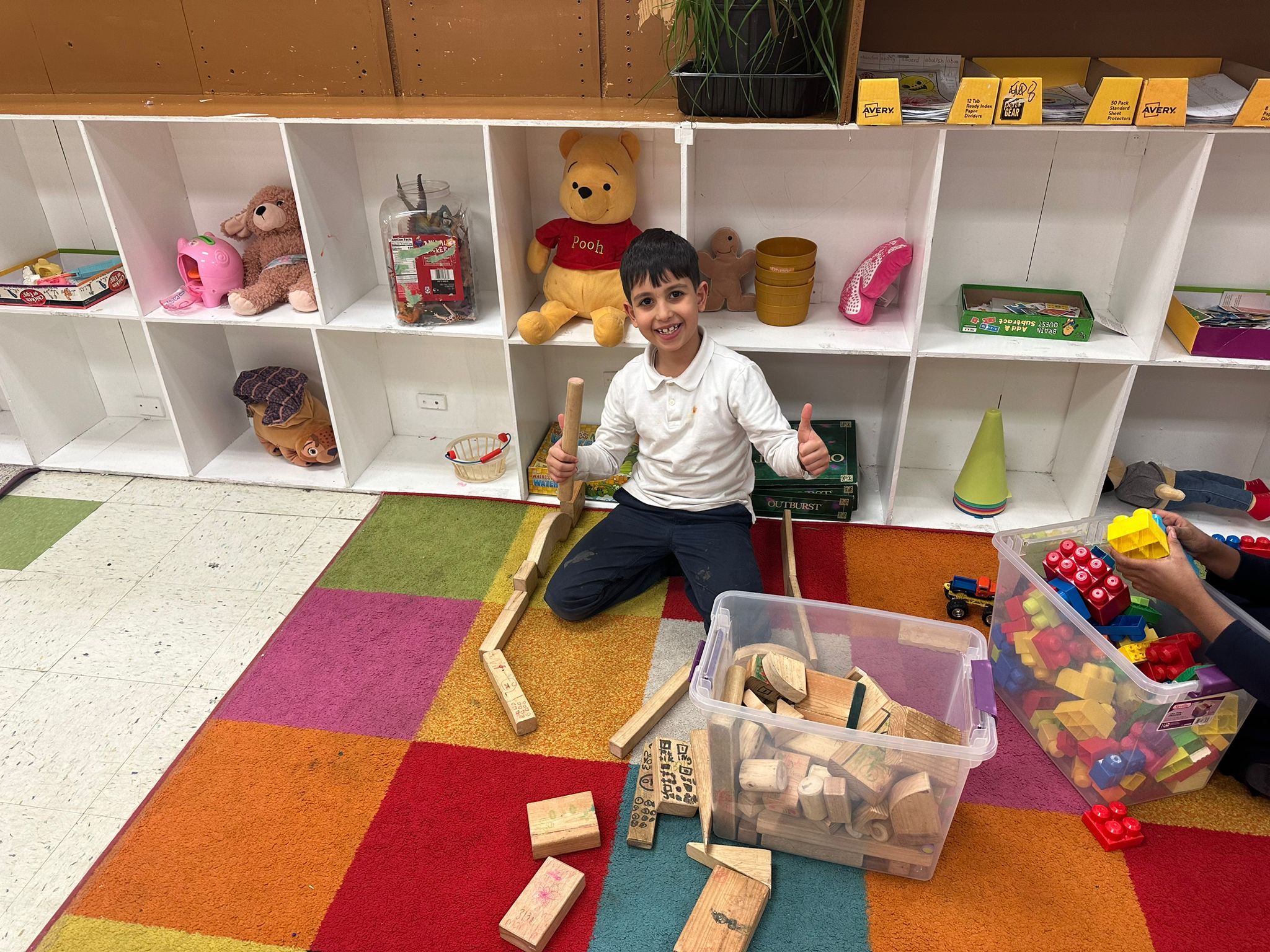
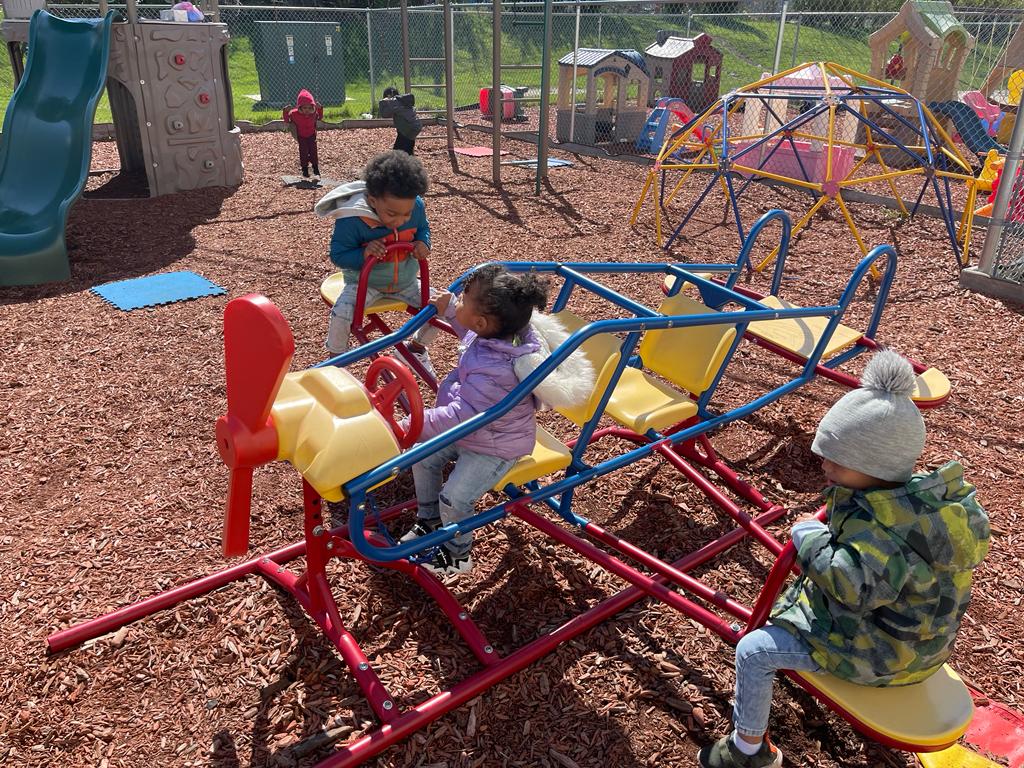
Outdoor play area at Crescent Learning Center
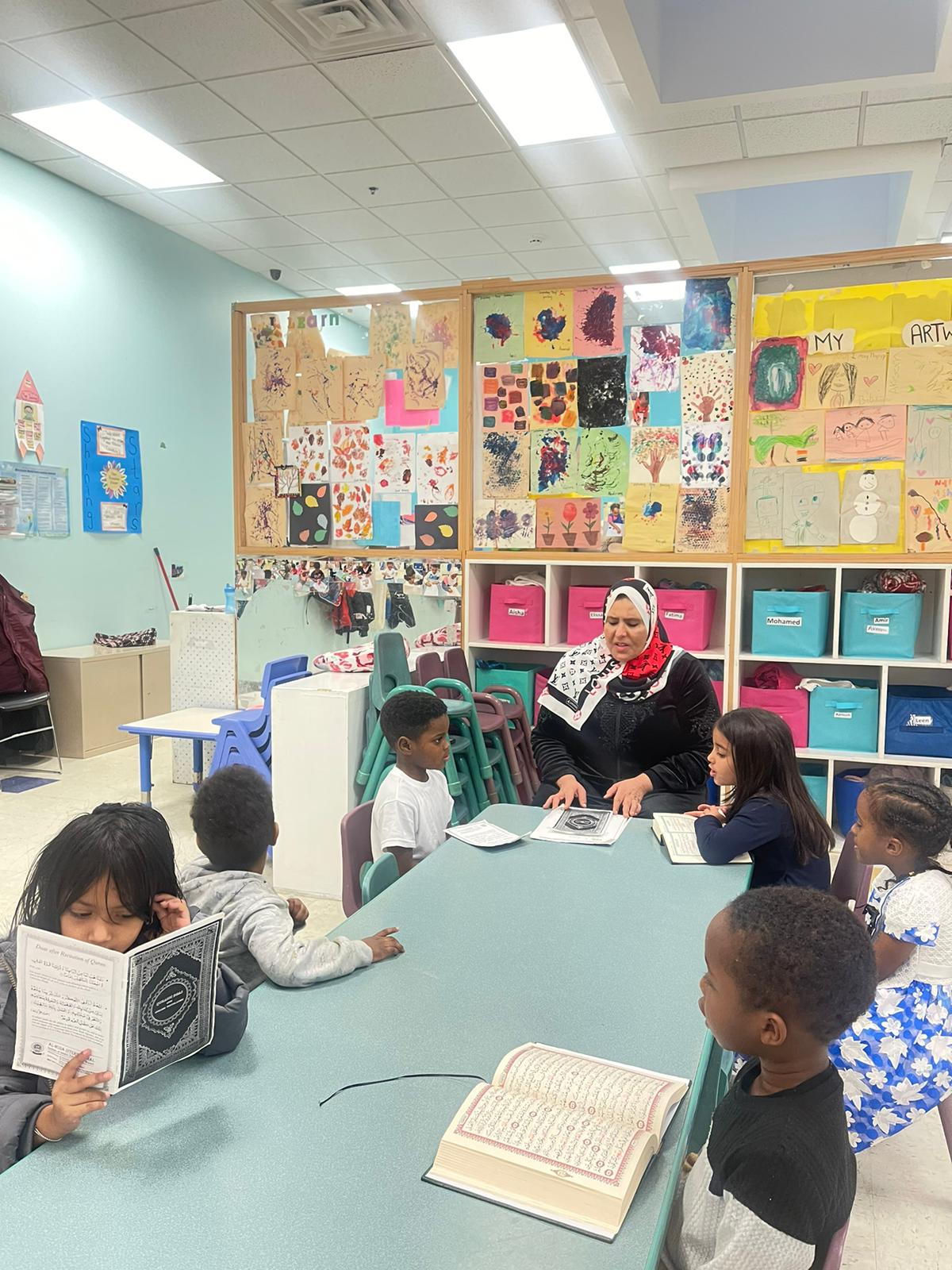
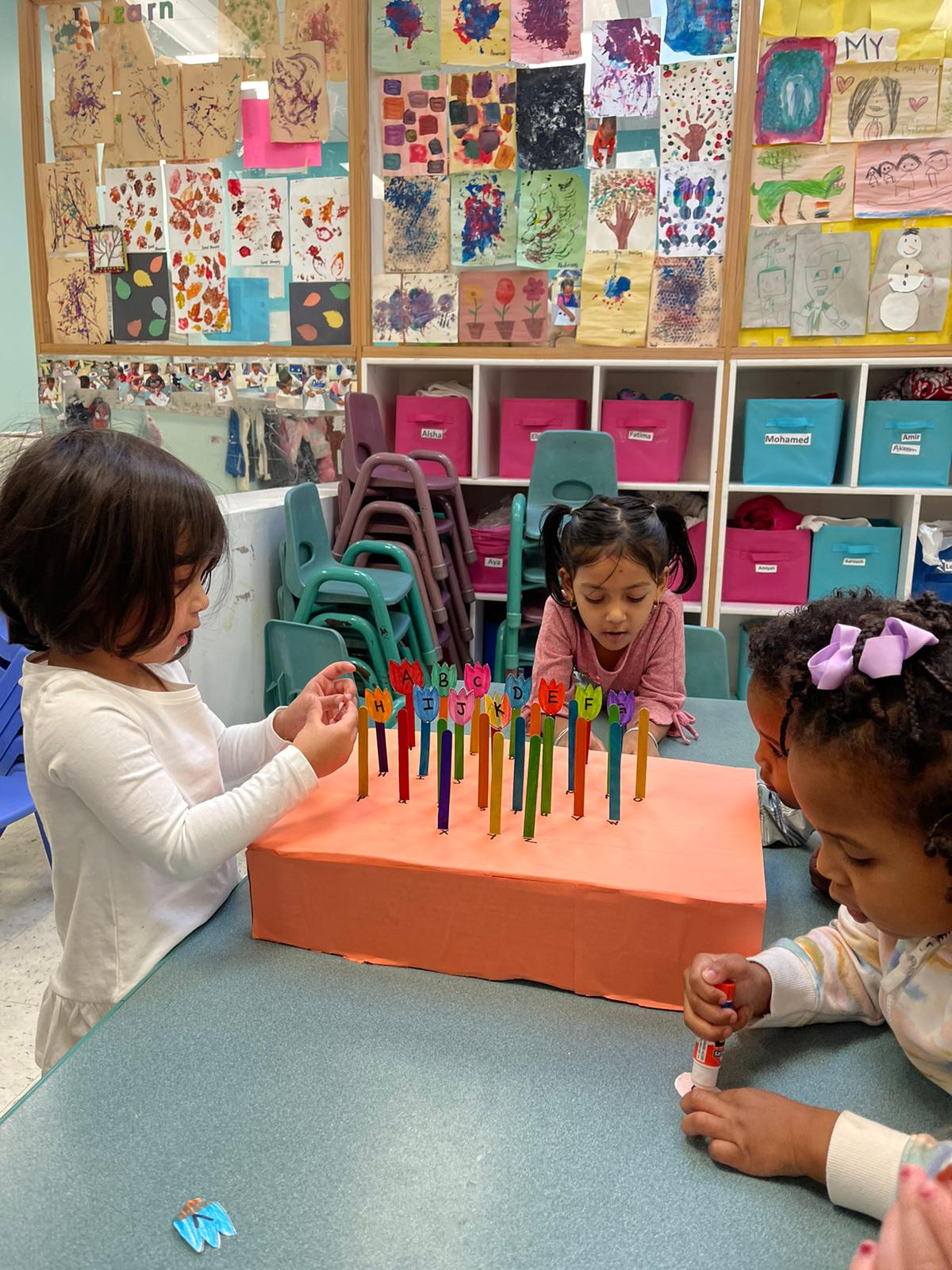
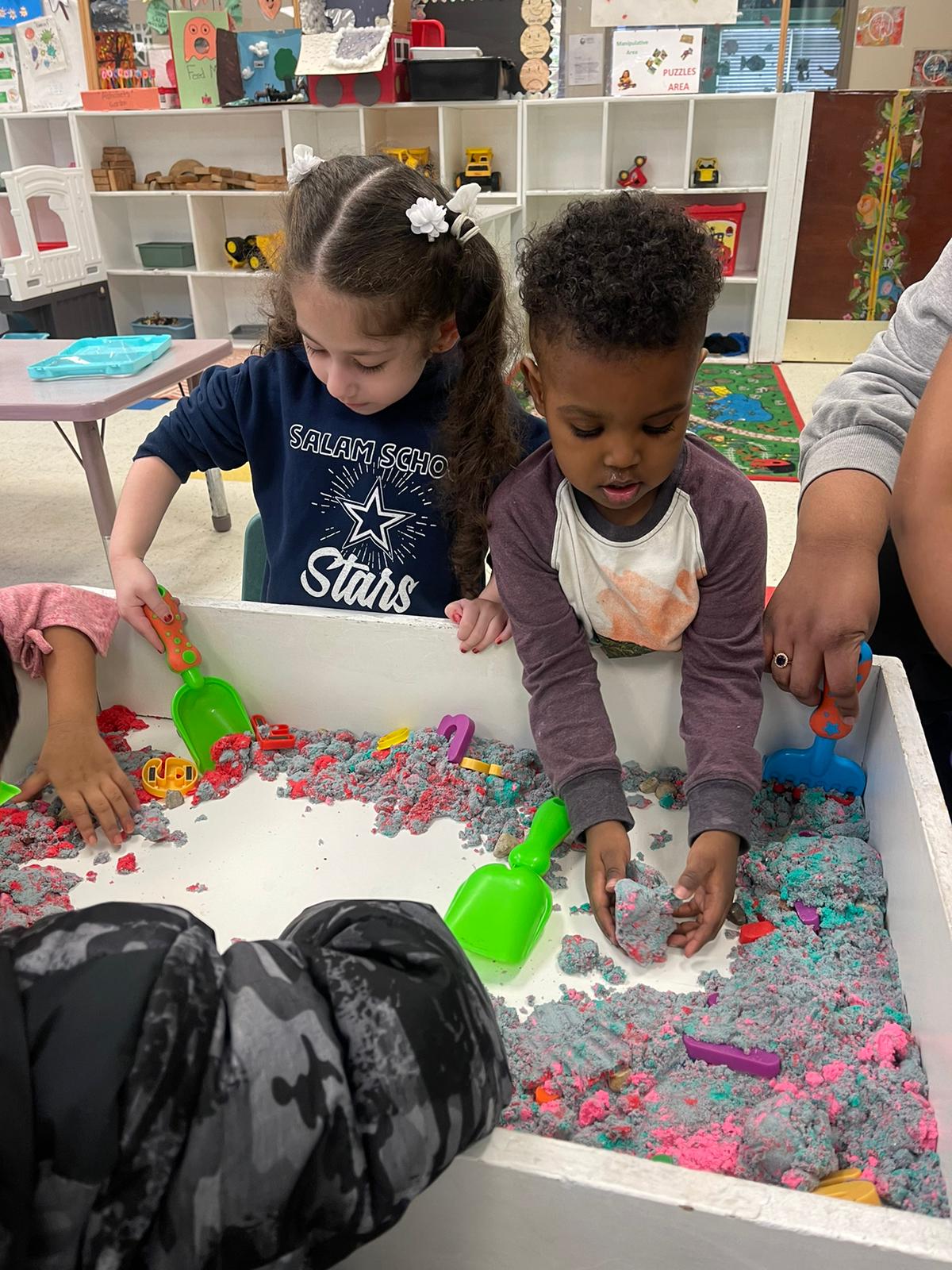
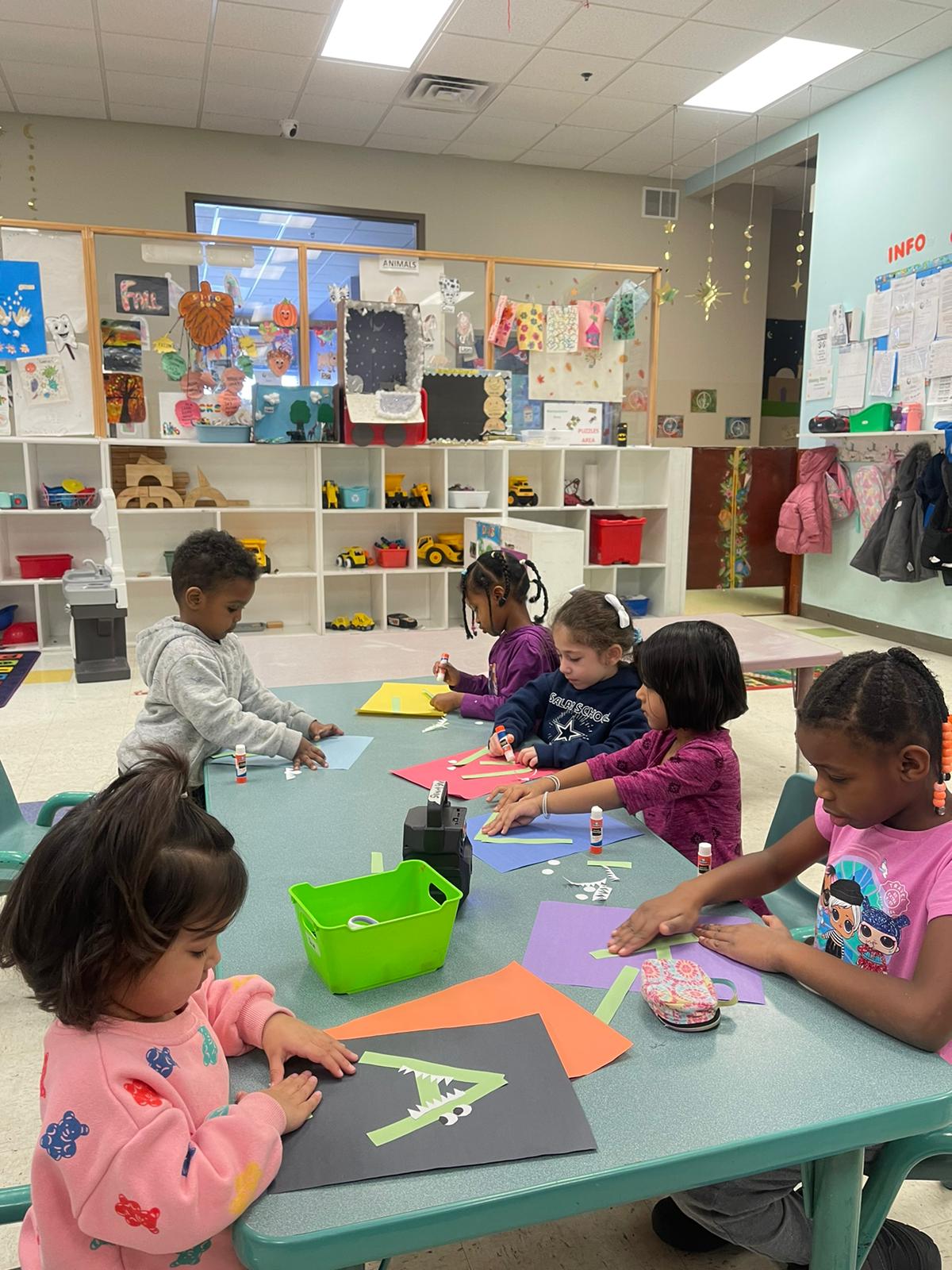
Crescent Learning Center cares for kids ages six weeks to 14 years, from 6 a.m. to 8 p.m. Currently, some 15 non-Muslim children are enrolled. According to Arain, parents of those children have praised the center for its positive environment. Among the pluses: no bad language is allowed. The meals are halal, prepared from scratch, and there is a prayer before eating. The kids are exposed to some basic Islamic views as applied to their behavior. “After God comes the Prophet, after the Prophet, your parents, and after parents come your teachers,” Arain said.
She has evidence of the positive outcomes for Crescent’s children. During the Covid lockdown, several of her earliest graduates, in college by then, volunteered to help set up virtual programs. “I pray to God to give me the strength and health to continue doing this,” Arain said. As for the role of women, she added, “I feel it is time all over the world that people should realize the importance of women as mothers, daughters, sisters and businesswomen. We are now in every profession.”
Janan Najeeb
Thirty years ago, when Muslim were still barely visible to most Milwaukeeans, Janan Najeeb launched the Milwaukee Muslim Women’s Coalition (MMWC). They were, she said, “a group of women who’d meet and discuss our experiences and interactions with people—at work or other situations. The stereotypes people had about Muslim women pushed us to start a speakers’ bureau to give people better information about Muslims.”
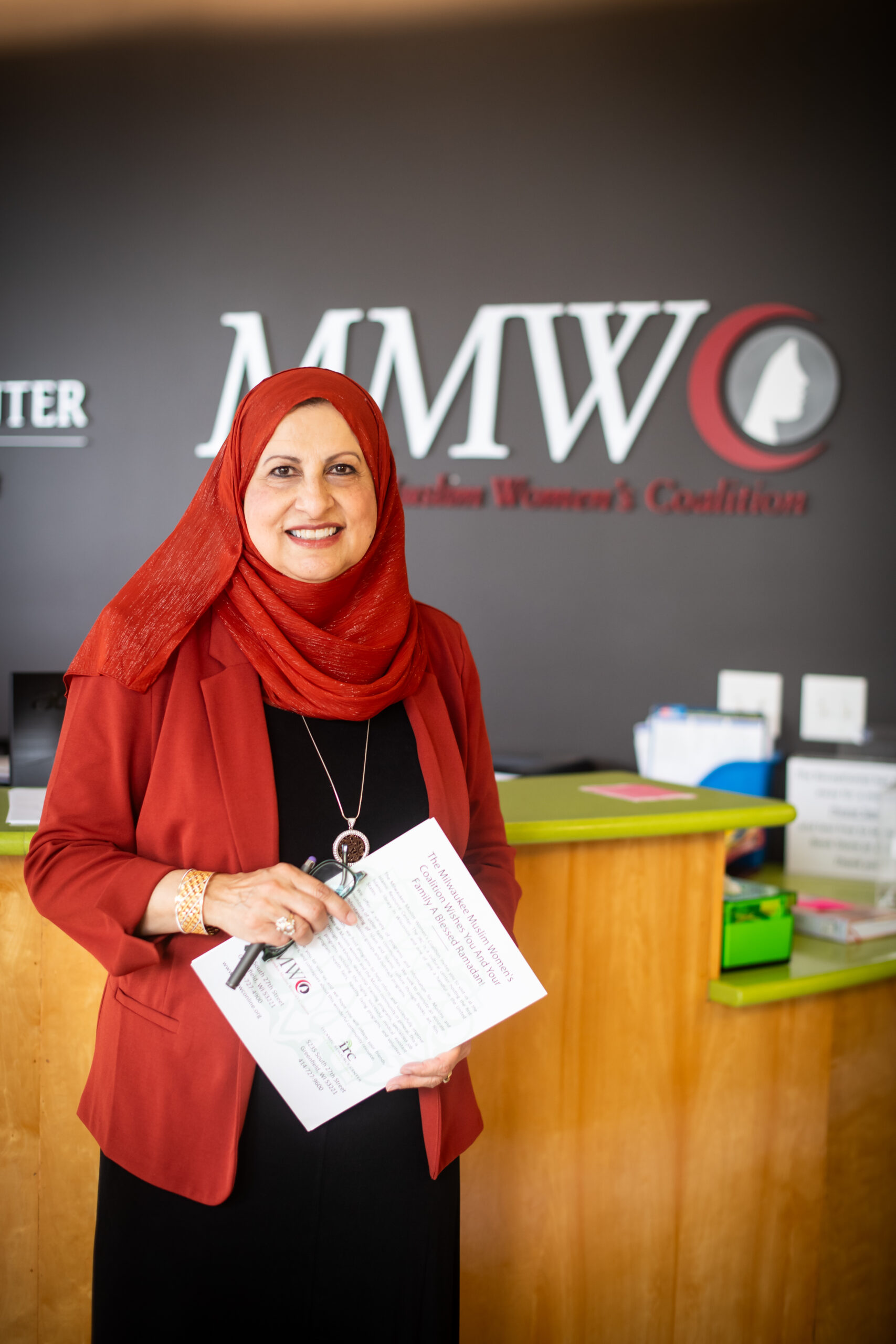
Photo by Mouna Rashid
Janan Najeeb, executive director and founder of MMWC
The volunteer group brought speakers to women’s clubs, churches and schools. However, this valuable work didn’t come close to fulfilling Najeeb’s growing vision for what could and needed to be done. Fourteen years ago, MMWC became a 501(c)(3) nonprofit organization.
Since then, MMWC has been the launchpad for the Wisconsin Muslim Journal, the Milwaukee Muslim Film Festival, Our Peaceful Home and the Islamic Resource Center (5235 S. 27th St., Greenfield), a cultural center housing a lending library and hosting book clubs, notable speakers, networking brunches and a host of other activities for and about the Muslim community as well as of interest to the broader community. It’s a welcoming and informative place for people of all faiths. MMWC now has a staff of 10 and nearly three dozen private contractors including photographers, interpreters and journalists, and depends on dozens of volunteers.
If you are working under any organization, you are limited by their vision, but we were our own organization, making our own decisions. This allowed us to work without bureaucracy to brainstorm and create our own vision and pursue what we thought was important.
MMWC’s tireless educational work in cultural, social and political arenas, and its extensive collaboration with non-Muslim organizations, has raised and changed the profile of Muslims across Wisconsin. “A lot of the work we have done has helped people to better understand Islam in general and Muslim women in particular, it has helped create a welcoming space for Muslims in many parts of society.”
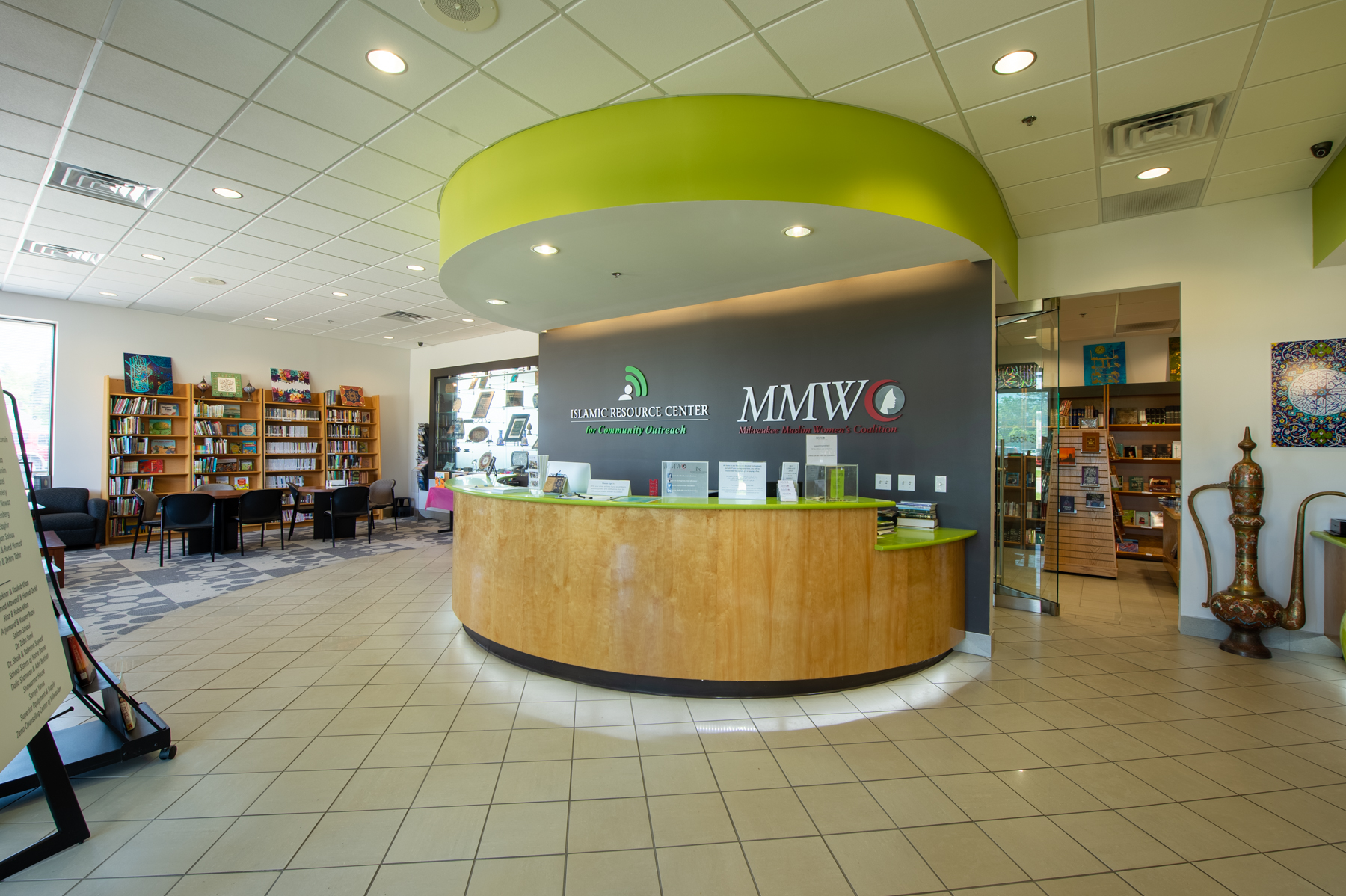
Photo by Mouna Rashid
The Islamic Resource Center (IRC) in Greenfield was built in 2011. It is the home office of the Milwaukee Muslim Women’s Coalition.
The MMWC was the only community organization invited by elected officials to meet with the Afghan refugees in Fort McCoy, which is reflective of the decades of relationship building that has taken place.
“Our recommendations were taken seriously and we were invited to a follow-up tour to see how the refugees were faring.” The MMWC continued supporting the Afghan women after they were resettled with sewing circles and support groups, while their children participated in art therapy, storytelling and English strengthening classes. The MMWC worked with Boswell Books who helped fund dozens of English/Pashto and English/Dari story books.
With nothing quite like it anywhere in the U.S., MMWC has become a model that Muslim groups in other cities are studying. “There are many organizations with a more specific focus, there are bookstores and outreach centers in other places, but there is no other place, run by a Muslim women’s board and fully independent, that is a library, an educational and outreach center that welcomes people of other faiths.
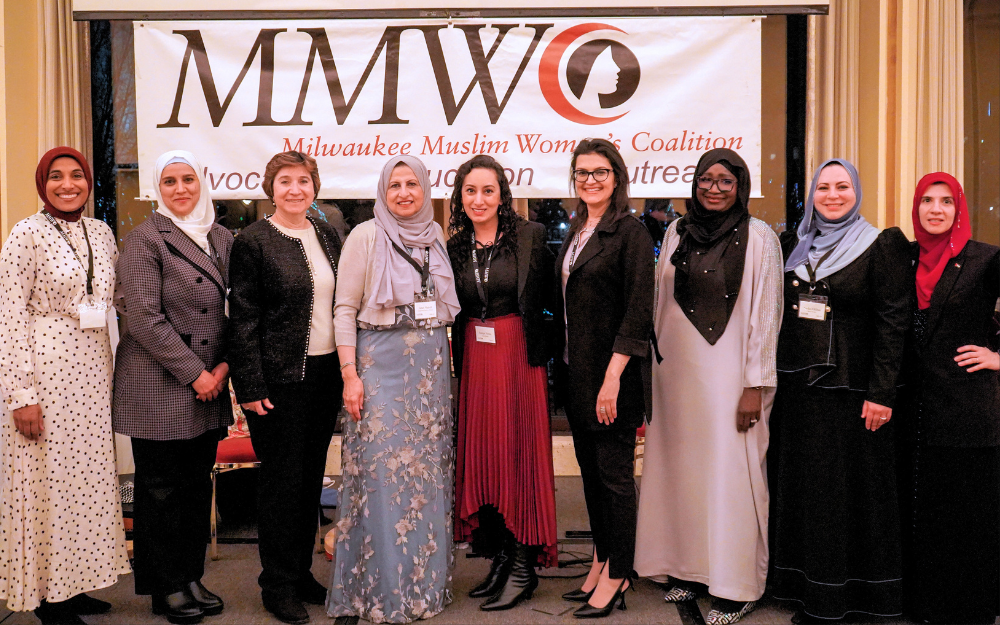
Photo by Kamal Moon
The Milwaukee Muslim Women’s Coalition 2023 Board of Directors at the MMWC Annual Gala, from left to right, Dr. Aishah Aslam, board vice president, Dr. Hana Alqam, Dr. Sahar Kayata, board treasurer, Janan Atta Najeeb, founder and executive director, Soniya Yunus, Dr. Hanadi BuAli, Dr. Fatoumata Ceesay, board president, Nadia Alkhun, Ream Bahhur, board secretary. (not shown: Dr. Dima Adl, Masarat Allaqaband, Amal Jaber)
The MMWC has been a leader in interfaith dialogue and social justice work. Najeeb chairs prominent committees on the two main interfaith organizations in Milwaukee, the Interfaith Conference of Greater Milwaukee as well as the Milwaukee Inner-city Congregations Allied for Hope (MICAH). Many of their meetings are held at the Islamic Resource Center, a welcoming establishment.
Najeeb also convened the Wisconsin Coalition for Justice in Palestine, a coalition of more than 60 organizations, bringing her deep concern for the oppression against the Palestinian people to the forefront.
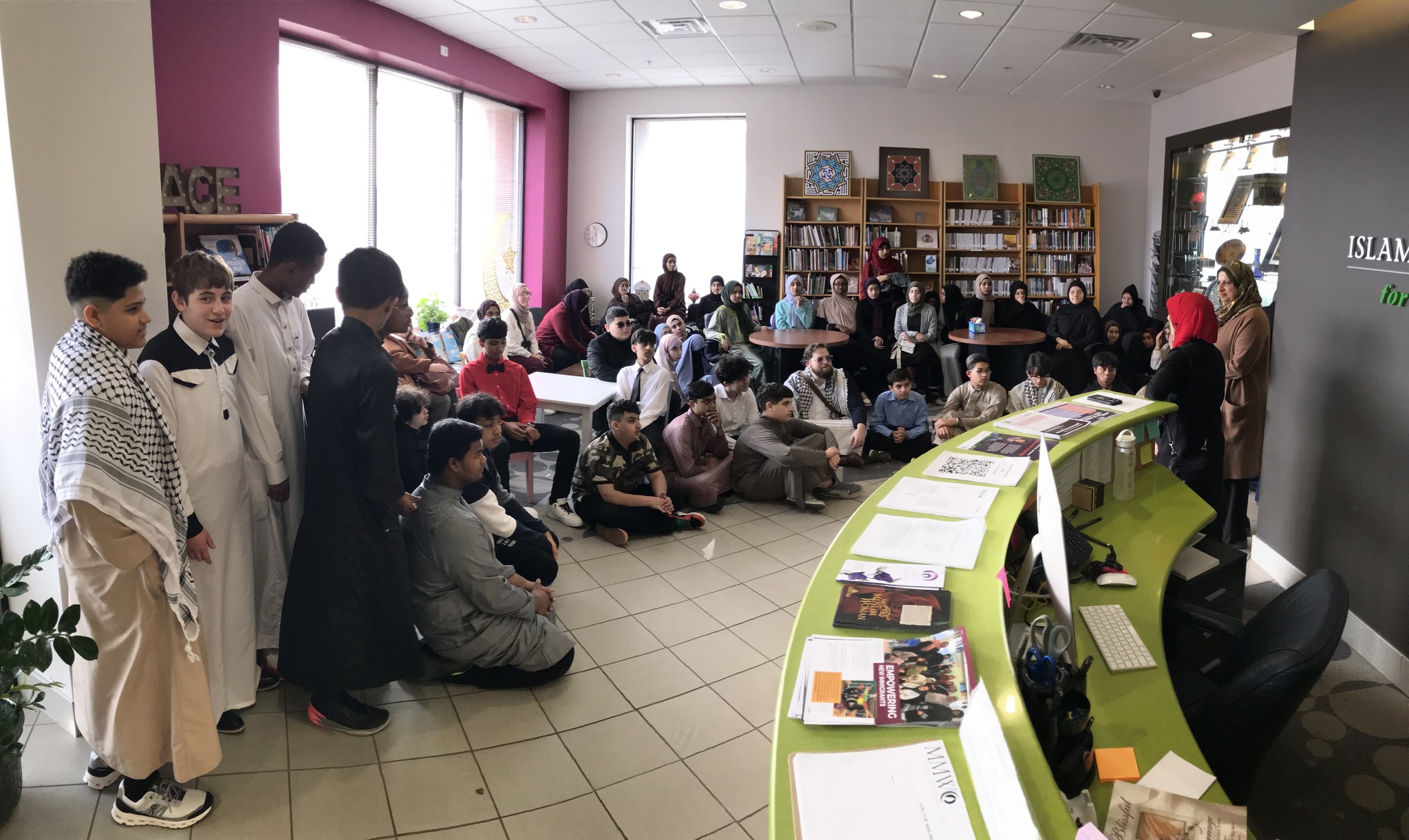
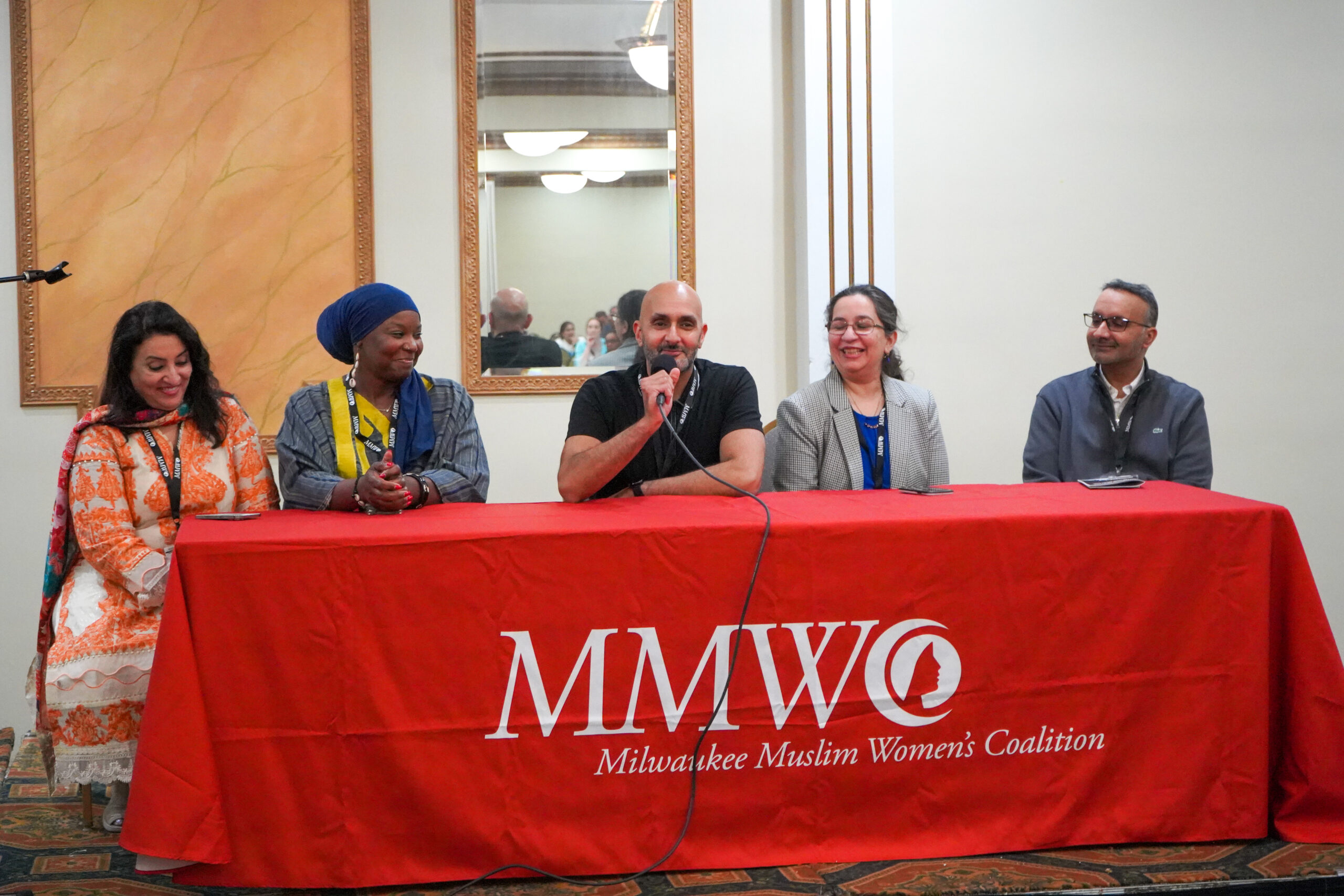
Photo by Kamal Moon
The 2nd Annual MMWC Behavioral and Mental Health Conference, “Mental Health & The Muslim Diaspora: Proving Guidance Through a Cultural Lens,” in partnership with the Medical College of Wisconsin and the Wisconsin Department of Health Services aimed to provide context, information and strategies to help providers gain greater cultural competence when working with members of the incredibly diverse Muslim community.
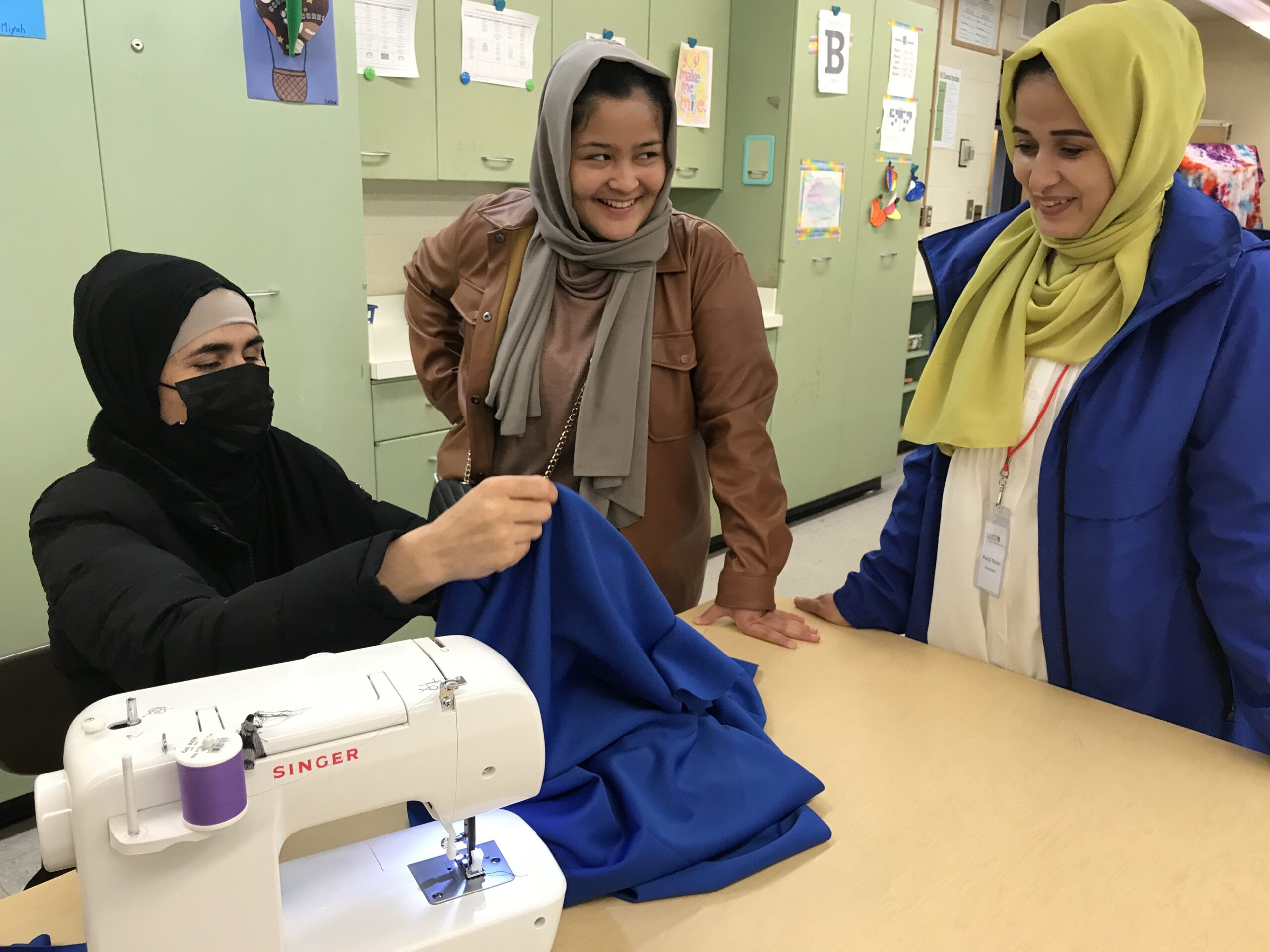
Photo by Cherrie Hanson
For the past two years, MMWC has provided a program for Afghan children and their mothers on Saturdays for social connection and a sewing circle for the women while the children engage in other activities.

Photo by Kamal Moon
The 8th annual Milwaukee Muslim Film Festival on Oct. 19-22, presented films from around the globe including panel discussions with producers, directors and/or experts accompanying each of the festival’s eight films. Middle Eastern food items were offered before each film because, “The Muslim tradition of hospitality requires food to be served to visitors to one’s home,” Najeeb explained. “Once we have eaten together, we’re friends.”
Najeeb is currently implementing a strategic plan that includes changing the name to the less geographically specific Muslim Women’s Coalition, reflecting its mission across Wisconsin and beyond.
“When we started 30 years ago, we never anticipated that this is where we’d be,” Najeeb said.
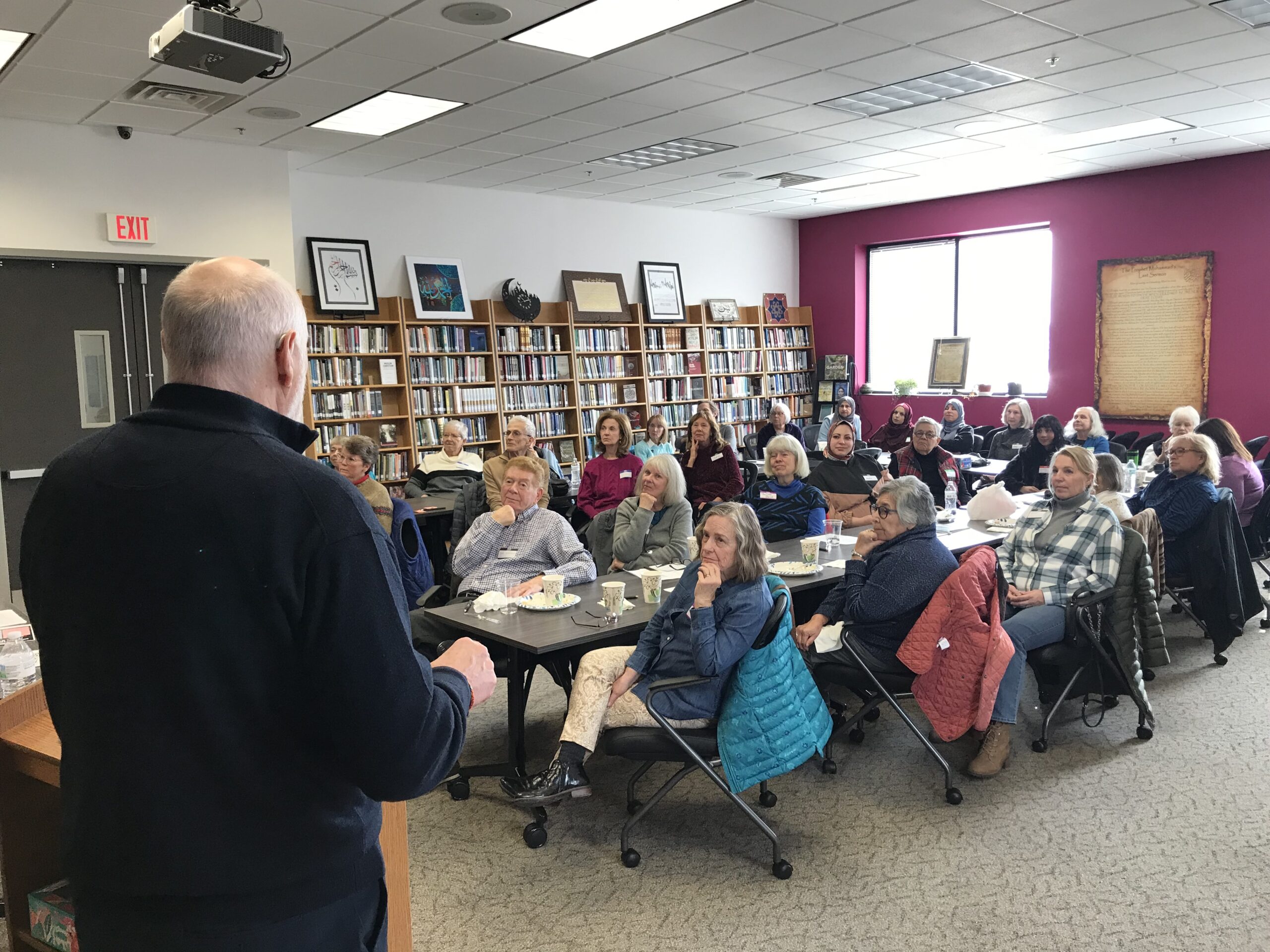
Photo by Cherrie Hanson
The last Friday of the month MMWC hosts a community Networking Brunch for connection, education, sharing a delicious meal together and making friendships. Everyone is welcome and topics are varied and topical.
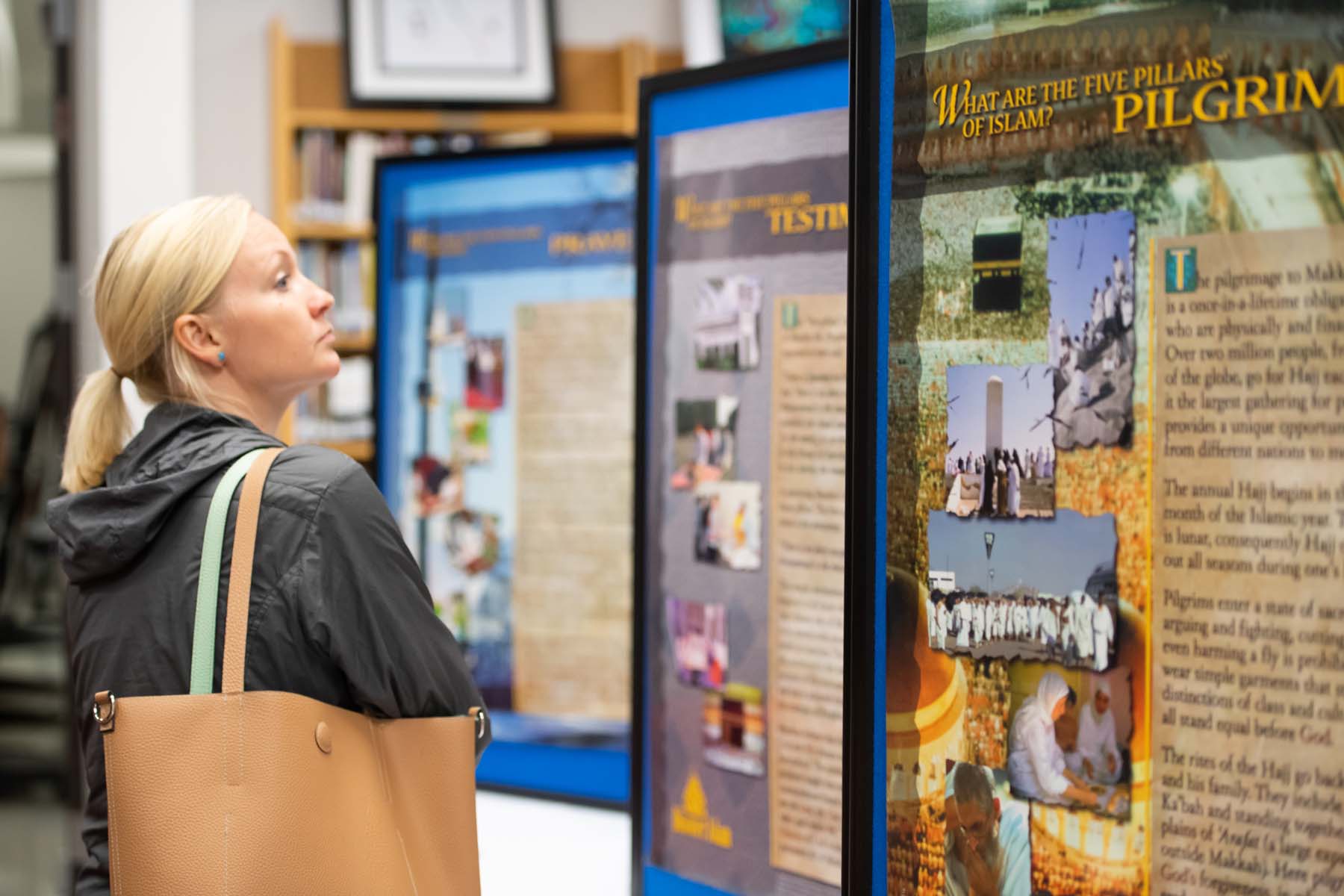
Photo by Mouna Rashid
Islamic Resource Center and Milwaukee Muslim Women’s Coalition is a popular stop for Doors Open Milwaukee, welcoming people from all over the city to learn about Islam and Muslims.
